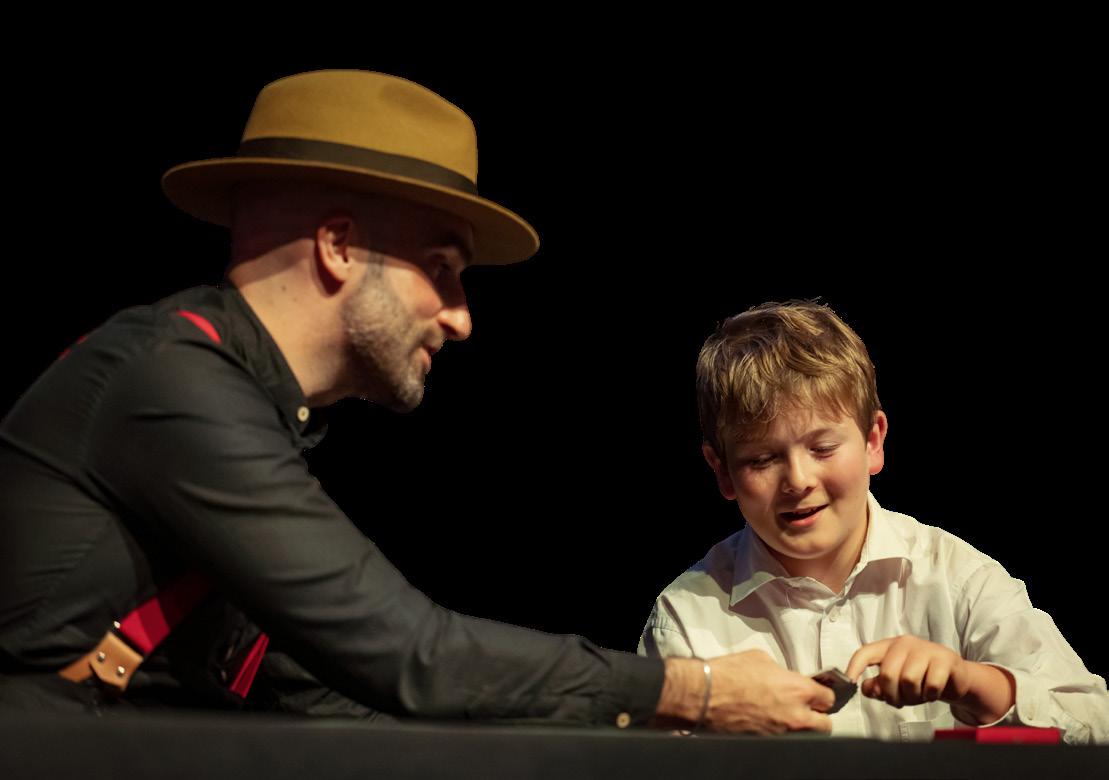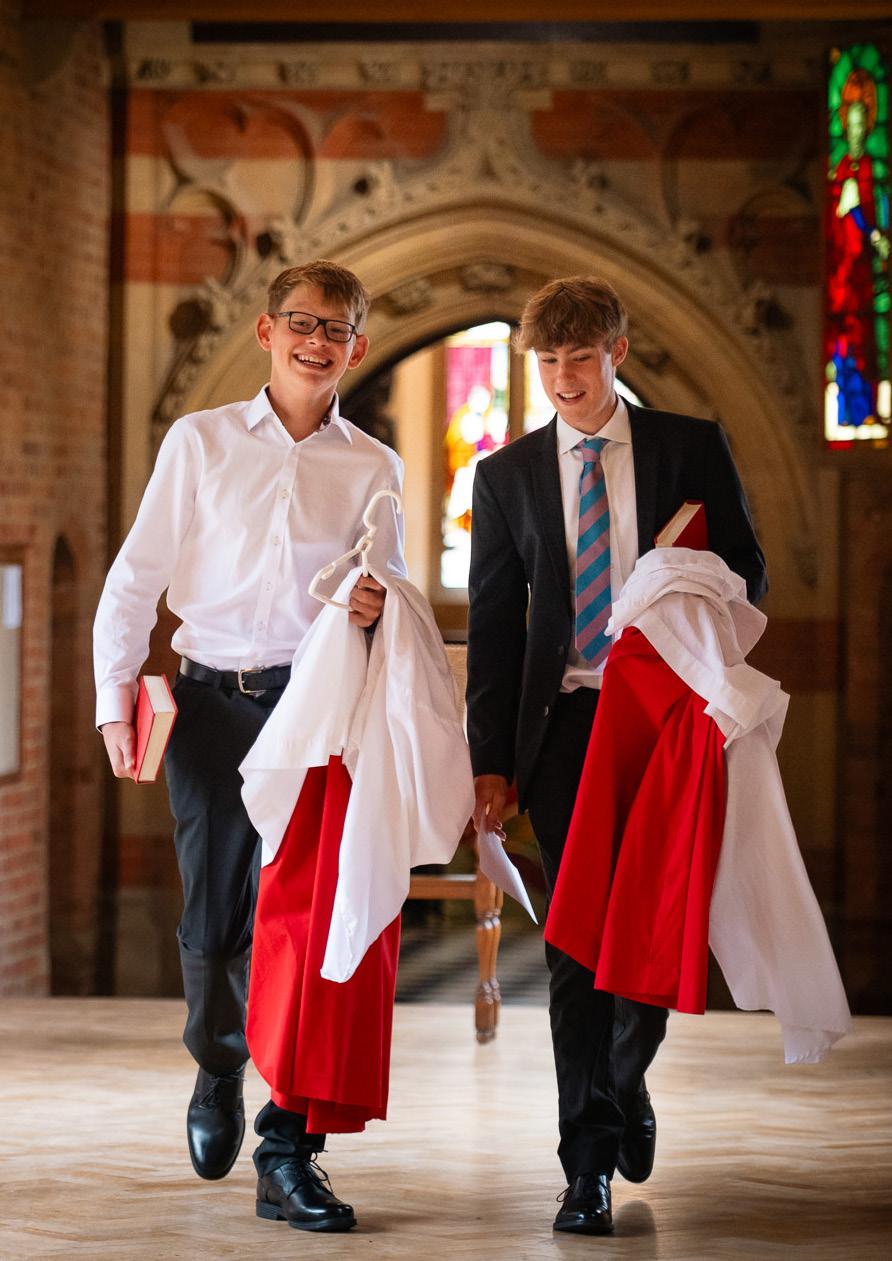

THERADLEIAN
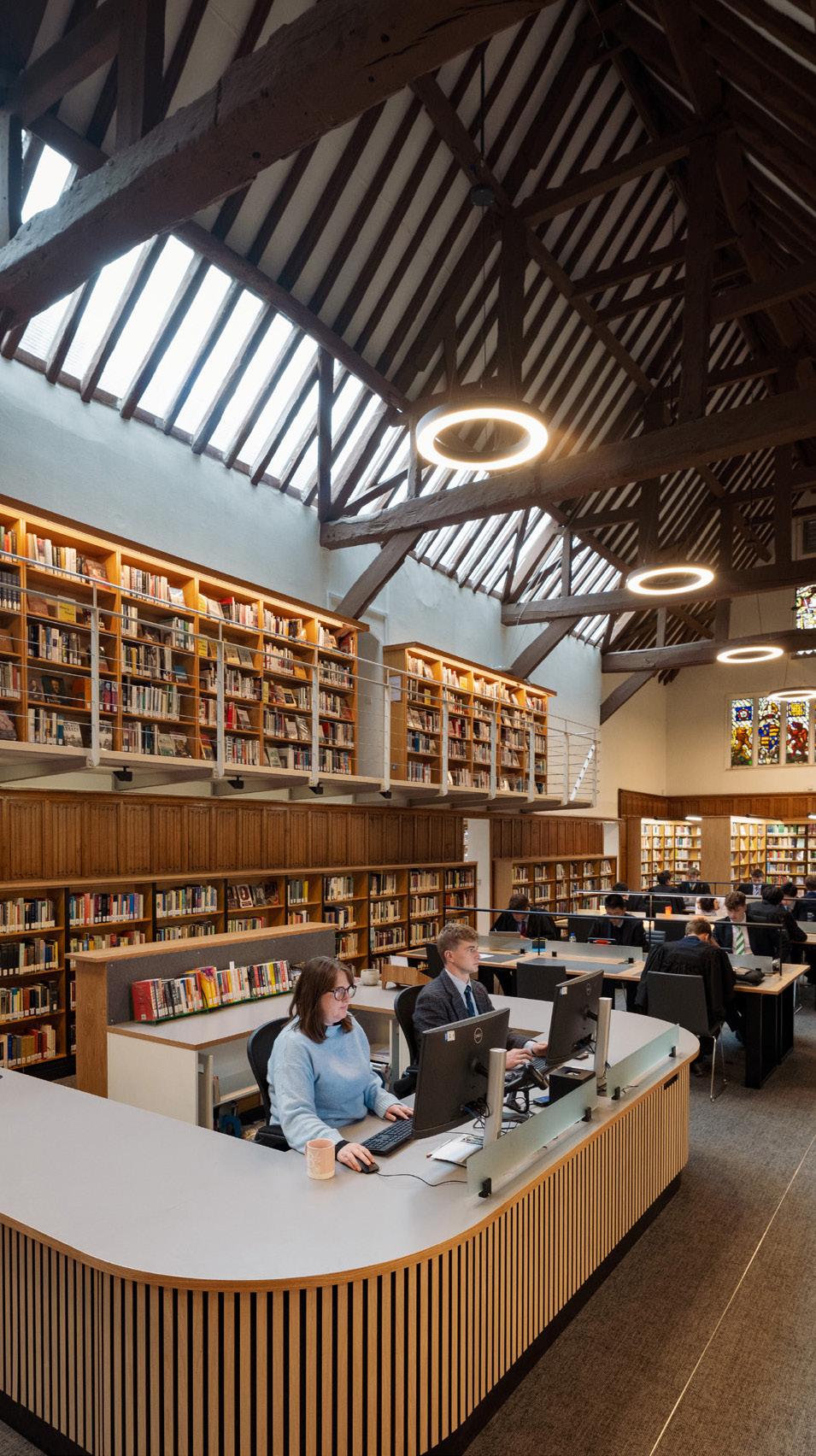
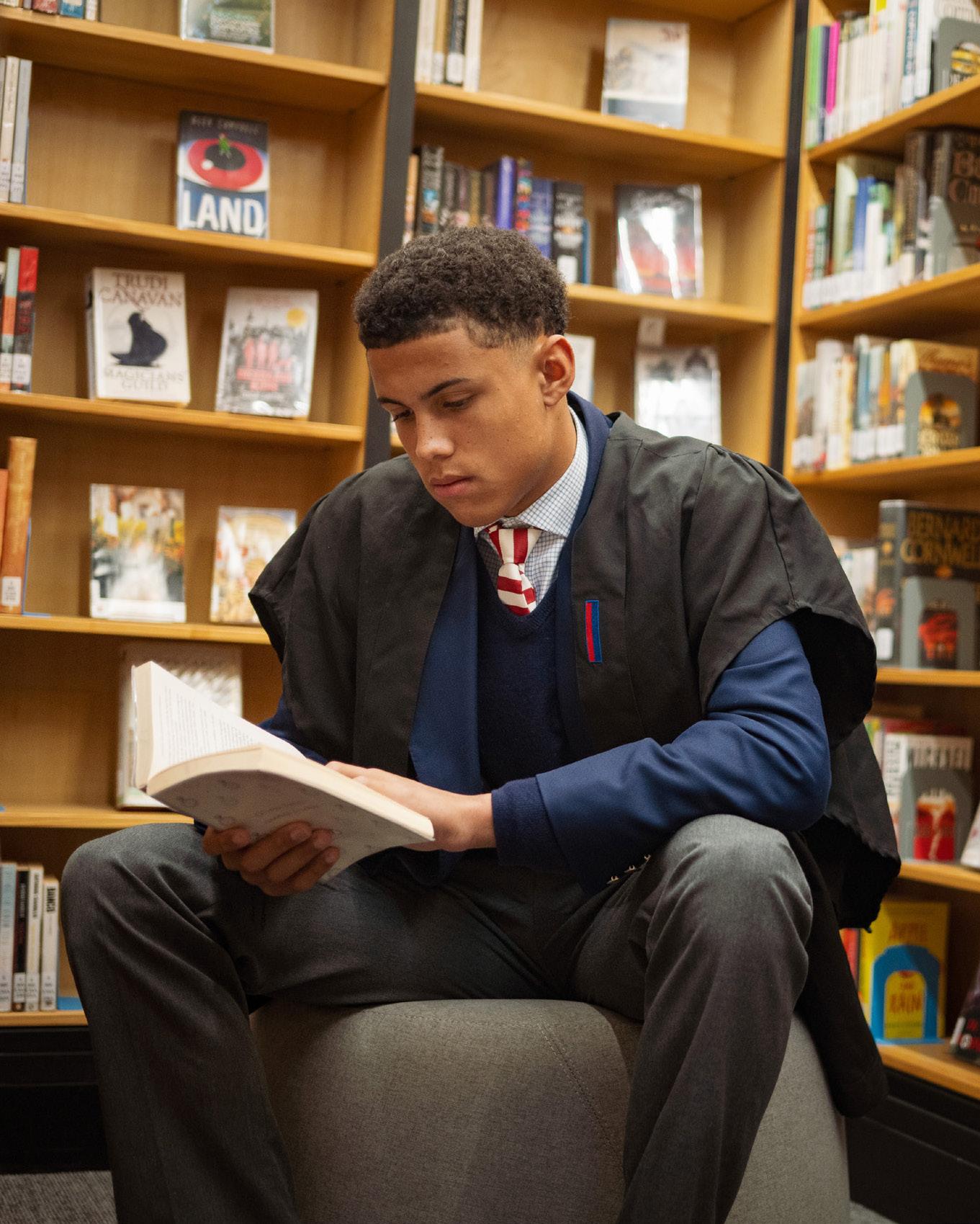
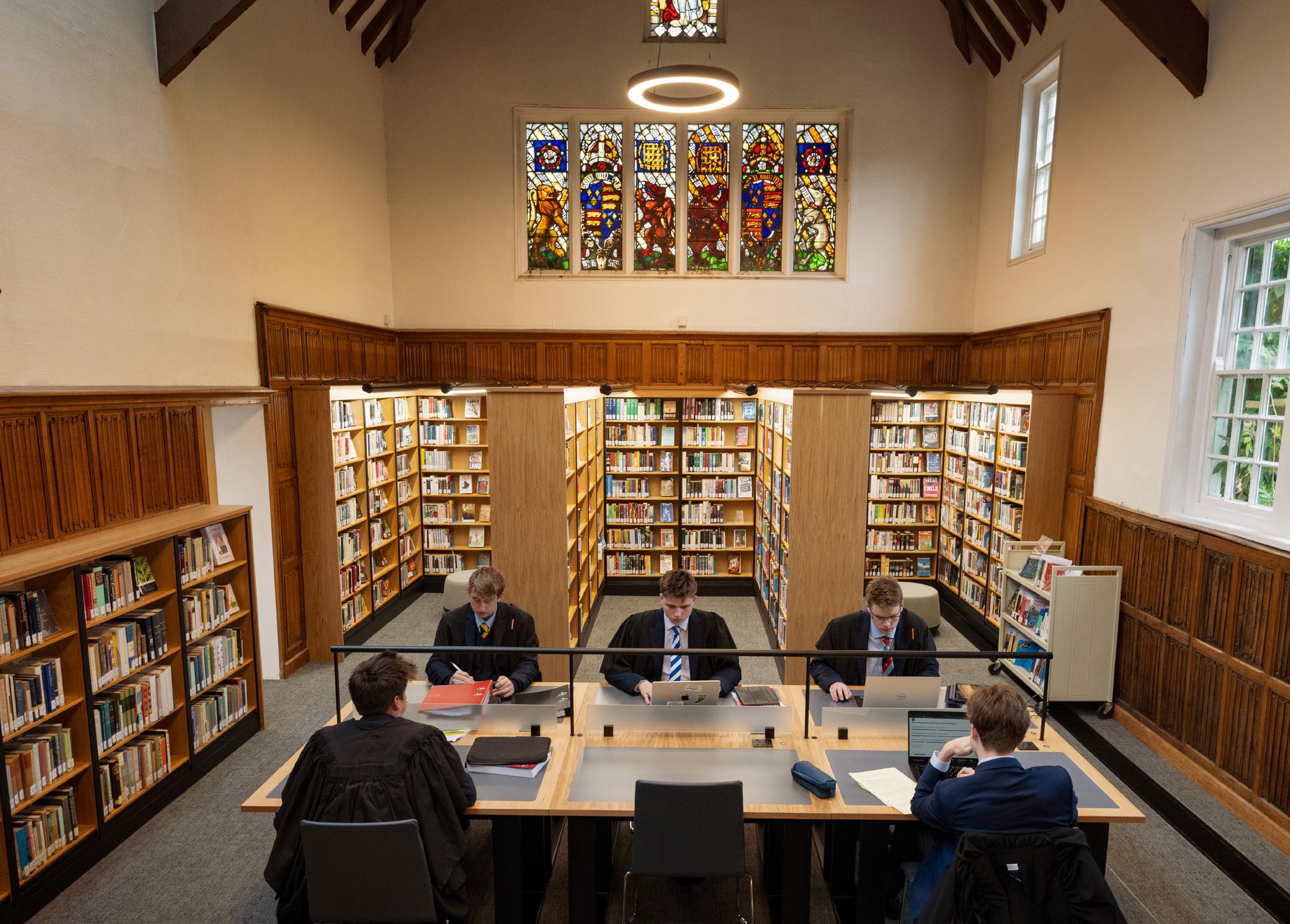


From the WARDEN
Ithink it was J.K.Rowling who said, ‘If in doubt, go to the library’. I have no idea whether this was a throw-away remark or a product of a lifetime of thought but, either way, she landed on a profound truth. It is profound on a number of levels. Most significantly, perhaps, there is the simple fact that in the library one can find answers to questions. Not just the sort of ‘answers’ that seem to dominate the world in which we live: the simple, the banal or the quick; the ChatGPT / Google / YouTube response to a ‘search’ with a need for an immediate response. In books, we find the considered work of months and years as writers share their thoughts, insight and understanding. We hear the voices of authors past and present. We discover truth, beauty and goodness in fiction and non-fiction as we explore the great themes of life. If in doubt, go to the library.
It is a place of intellectual endeavour. If distractions get in the way of study, if a calm atmosphere is what is needed, if a sense of shared focus helps to incentivise us to concentrate more, it is the right place. If, as at Radley, there is that extra nudge to leave the phone to one side as you enter, it is all the more powerful. We want to believe that we can read for pleasure, conduct our research and write that essay under our own steam and in our own space. But we are not sure we can. If in doubt, go to the library.
It is a place of solace too. When life seems that bit too demanding. When what we need to do is escape. When not only silence helps but getting lost in a book does too. When we emerge a little bit enriched, that touch more confident, marginally more upbeat and a bit more balanced. We often, rightly, worry about the negative effect of the digital on our habits and the increased anxiety that follows. We could be equally evangelical about the positive impact of a book. If in doubt, go to the library.
It is no surprise, then, that Radley cares about its library and that we have put a lot of thought into its redesign. You will see in this edition of The Radleian not only how successful the project has been, but the ethos and thinking that goes around it. The Library is one of the best spaces in the College to support mental health. It has at its heart the promotion of disciplined academic study. And it opens our minds.
And, just to demonstrate that I would not want to over rely on the author of Harry Potter for fear that might be seen as too low-brow, consider Einstein: ‘The only thing that you absolutely have to know is the location of the library’. I think Radleians may add one or two more locations, and probably rightly so.
But Einstein had a point.
Radley Union, The Triumph
There is always a bit of luck in winning a national debating championship, but to win two years in a row suggests that perhaps there is something more going on below the surface. Tim Schmalz, Master in Charge of Debating, who was recently awarded the ESU Teaching Award for Oracy, tells us more.
It’s 8.29pm on a Thursday evening, and Coffee Shop is buzzing with excitement from over a hundred boys and dons. A group of Removes arrive just in time, but must climb over some 6.1s to claim the last few chairs. At the front, six boys nervously flip through flashcards, scribbling notes and taking a final sip of water. 8.30pm. The Chair rises, and the gavel falls – the debate commences. For 45 minutes, one could hear a pin drop as the audience hangs on each speaker’s every word. 30 minutes in, boys wriggle in their seats, hoping their hand is noticed to ask a question from the floor. After the vote is cast, boys stay back in Coffee Shop, replaying parts of the debate and critiquing arguments; conversations which continue over Cocoa back in Social.
Three years ago, the College’s debating society – the Radley Union – was revived, having fallen into abeyance for some time. Since then, the boys behind the Union have spearheaded the creation of a schoolwide culture of debating. At Radley, debating is ‘cool’.
Debating is open to everyone. There is a debate each Thursday evening after prep, and any boy can sign up. While sometimes a keen group of friends form a team, more often than not boys put themselves forward because they’re passionate about the motion. It is not unusual to see 6.2s debating alongside Fifths, learning to collaborate and building new friendships.
Named in honour of the late Warden Richard Morgan through a generous donation from his family, the inter-Social debating competitions are the best example of this. The Senior (Fifth and Sixth Formers, with at least one Fifth) and Junior (Shells and Remove, with at least one Shell) Cups
each run for four consecutive weeks, with backto-back debates in Coffee Shop and the SLT. D Social took both trophies last year, with DingDing (6.2), Benedict (6.2) and Tom (6.1) securing the Senior Morgan Cup opposing ‘This House believes in the wisdom in the past’, and Eddie (V), Merlin (R) and Luke (R) winning the Junior Morgan Cup opposing ‘This House believes that it is better to be kind than right.’

Debating is also boy-led. Two years ago, we set out to equip every boy at Radley with the basic skills to debate. We started a new initiative that sees the Union take over Remove APT slots in the Michaelmas Term. With two experienced Sixth Form debaters in each classroom, about 40 boys learn the art of debating over three weeks, culminating in a final debate that involves every single boy. Then, a new batch of 40 boys come in for the next cycle. At the end of term, Sixth Formers will have taught every Remove to debate.
Radley’s debating success also extends beyond our campus. In 2024, Brayden (2019, D), Mustafa (2019, A) and Blake (2020, A) won the National Grand Championship of the English-Speaking Union (ESU) Schools’ Mace competition, beating some 1,500 students from across the UK – the first national title for debating in Radley’s history. Earlier that year, Mustafa and Nazrin (2019, L) made it to the international English-as-a-SecondLanguage grand final of the Oxford Schools Debating Competition, while Seb (2022, A) was commended as one of the top-ten speakers of the International Competition for Youth Debaters, his first competition. In 2025, a reformed ESU team led by Blake including Mikolaj (2020, G) and DingDing did the unthinkable and won the ESU Mace two years in a row, opposing ‘This
House Believes that AI-generated content weakens critical thinking and creativity.’ The boys’ success is of their own making. They invest countless hours into research, writing, and practising. Importantly, their enjoyment of the experience is infectious, and the generosity with which seasoned debaters mentor peers and younger years is so typical of Radleians. Debating’s popularity stems not just from the success, but also its inclusive and supportive community. Now more than ever, any boy can be involved.
That boys have championed debating is unsurprising. Not a Cocoa goes by without a few boys huddled in a corner debating how



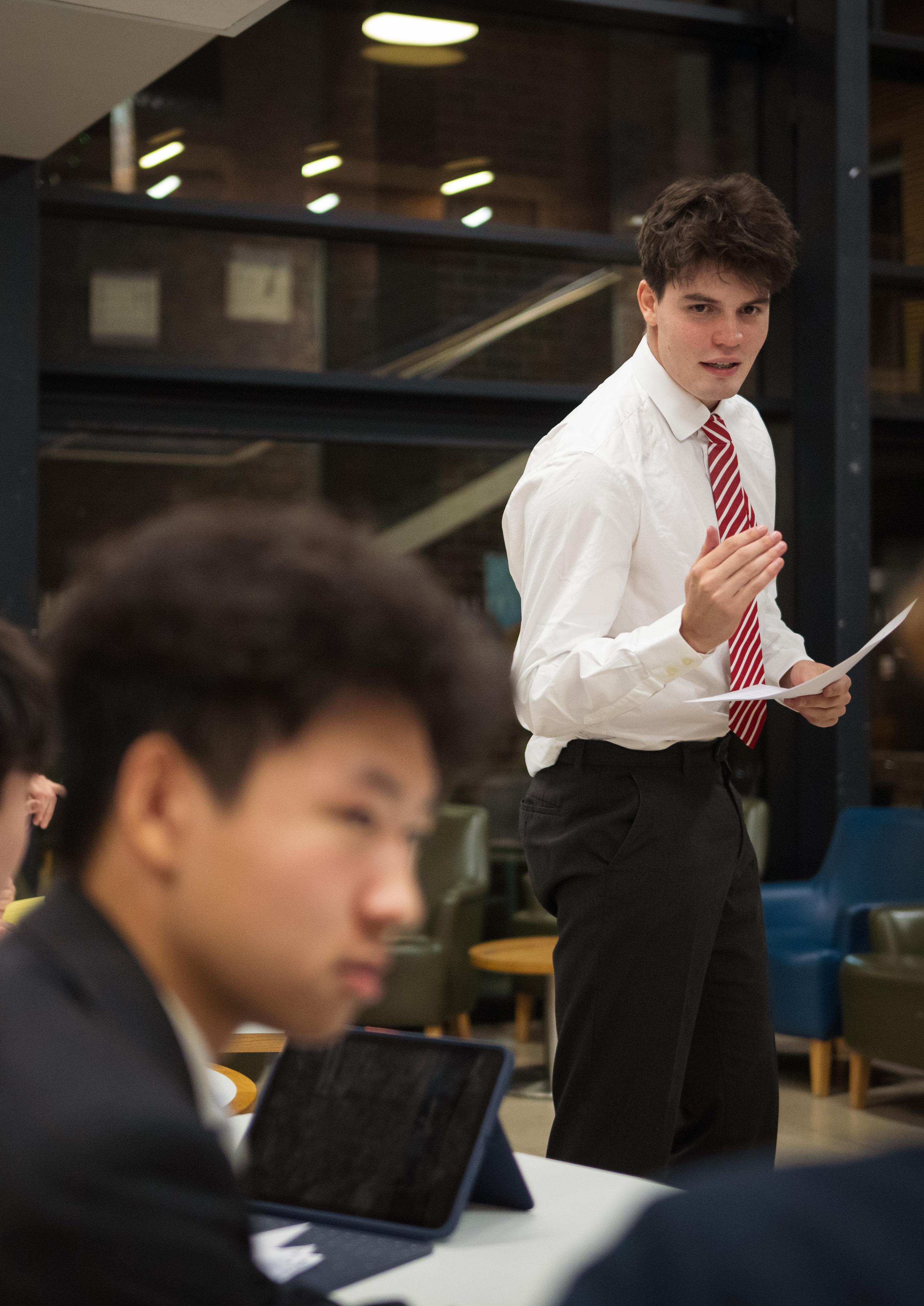
to solve the world’s problems... or which one of them is best at ‘patch rugby’. Having a point of view, the confidence to contribute something interesting and of substance to the discussion and listening to a range of opinions are qualities shared by all Radleians.
Debating empowers boys to become erudite, attentive and confident communicators, working together to resolve differences. But more than that, the Radley Union brings the school together to listen, to think, to challenge, to dare. That, I would argue, is a very good thing. Long may it thrive.
The Power of Performance
Music is at the heart of life at Radley, and performance plays a central role, with multiple opportunities every week for boys to play and shine. Sophie Lockett, Head of Performance, shares her insights into the benefits of weaving regular performance experiences into daily life.
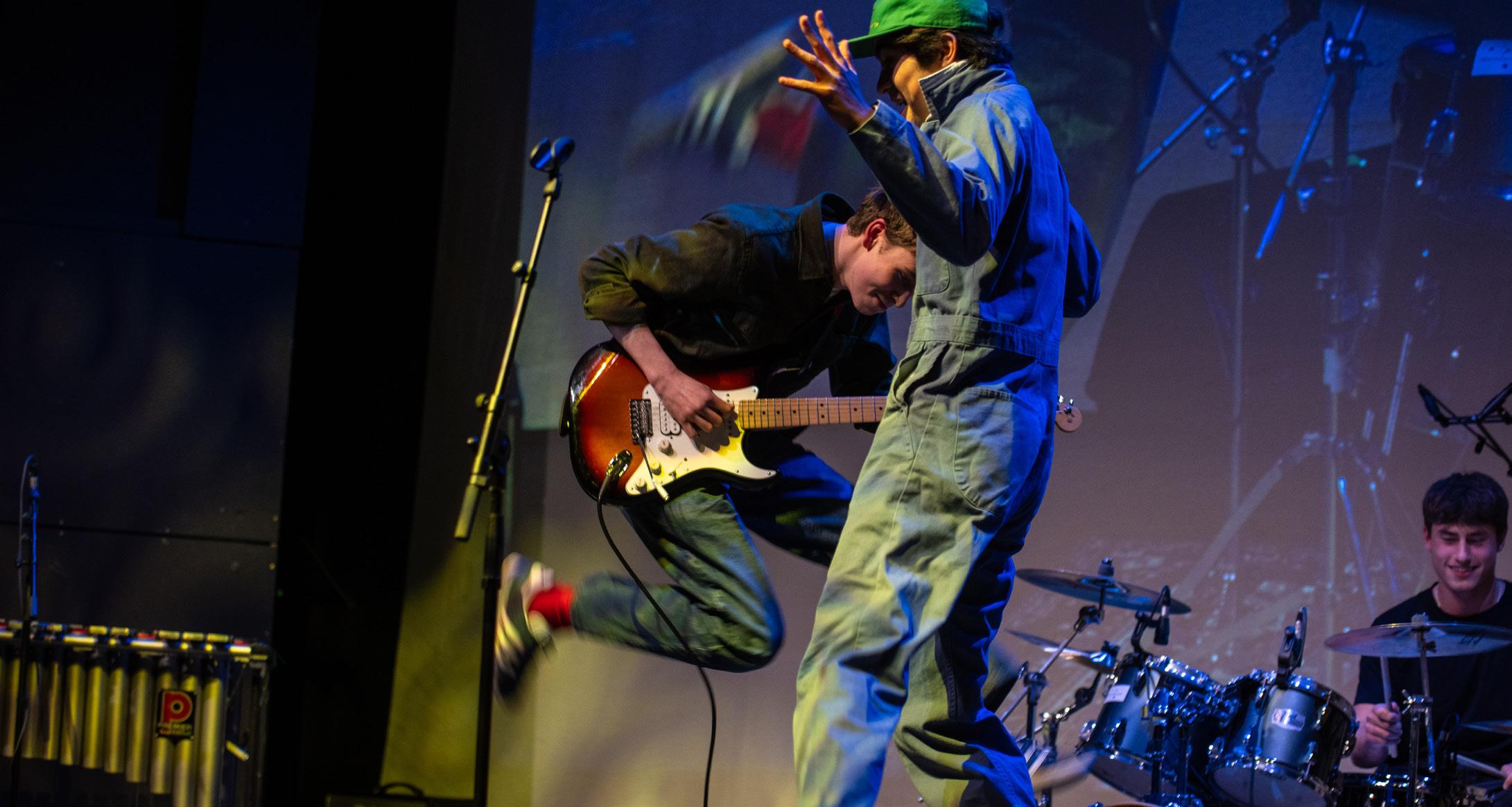
While some boys find performing exhilarating and natural, others are learning to navigate the anxiety that can sometimes surround it. This is something we are very aware of and aim to support. Performance develops confidence, resilience, and self-belief – all transferable skills that prepare students for whatever path they choose in life. Most boys here aren’t seeking to become professional musicians but I am certain their passion for music will continue forever. That passion is modelled by staff too, many of whom perform in concerts or play in the school orchestra, showing that music is not just for school but a lifelong source of joy and connection.
Since taking on my role as Head of Performance, one of the initiatives I am most keen to develop is our Performance Classes, something I introduced when I arrived. These sessions are designed not just to give boys a platform to play, but to help them retrain the way they listen to and critique their own performances. It is frequently the case, particularly with young performers, that when asked how they feel their performance went, the immediate reflex is to say it was terrible or that it went badly.
While this is a natural reaction, it isn’t helpful. In Performance Classes, we guide students to notice what worked, what they enjoyed, and
what they should keep in future performances, alongside identifying areas for improvement and learning how to approach practice with intelligence and purpose. They also provide the perfect platform to try out important repertoire for the first time, from a run-through of a diploma recital to a short Grade One piece in preparation for a first exam. These sessions are a key step in building confidence and performance skills. They help boys experience sharing music in a supportive, low stakes setting
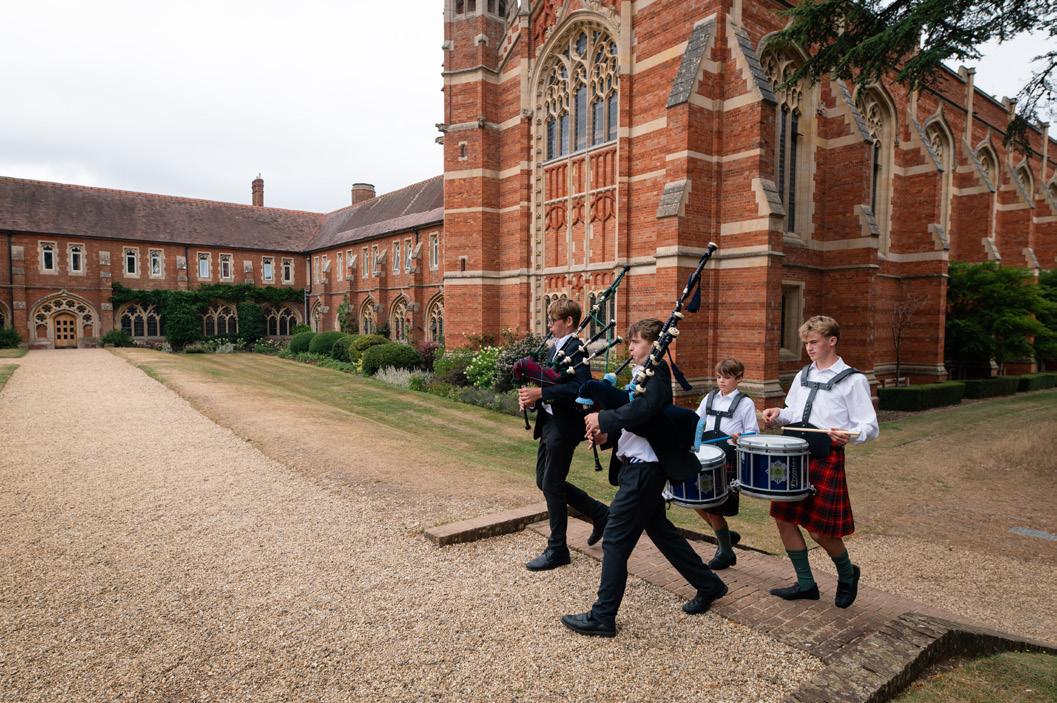
while fostering independence, curiosity, and growth. They also feed directly into developing efficiency in practice time, which is incredibly precious. This skill cannot be underestimated.
Monday ‘15@1:15’ lunchtime concerts take place in the Coffee Shop and will continue there, even when the new Music School is completed (January 2026). They are central both in the day and in campus location. There is something wonderfully unique about these little 15-minute moments: Frappés and Fauré, Biscuits and Bach. They will remain just as they are. Thursday lunchtime concerts are slightly longer and will move to the new Recital Hall, along with our Scholars’ Concerts and chamber music concerts. This is possibly the most exciting part of the new building, providing a professional and inspiring platform that I expect will be admired by all. Music, and the performance of music, are part of the fabric of life at Radley, and the new building will provide a home worthy of the skill and dedication of our musicians.
Having this outstanding space will also raise our profile, and we hope visiting performers and guests will be genuinely excited to be here. It is a special place, and we are incredibly lucky to have it.
I have been asked whether the new Music School will elevate the standard and quality of music at Radley, and my answer is yes, naturally. The environment in which we work has a profound influence on productivity.
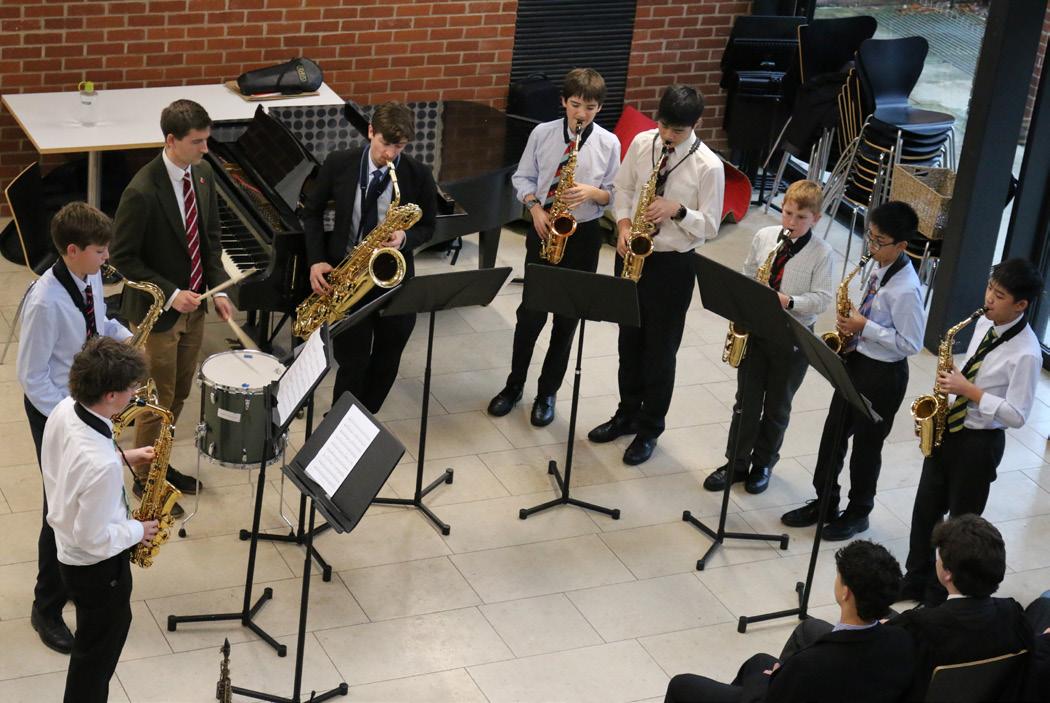
Not only that, but it affects creativity, focus, and motivation. This building is designed to be exactly that kind of inspiring space. Providing facilities that are not only purpose-built and functional, but genuinely enjoyable to spend time in, naturally encourages more practice and engagement. Likewise, the performance spaces are tailored to support excellence, meaning that the quality of what is already happening will only continue to improve. In short, a thoughtfully designed environment doesn’t just house music, it actively nurtures it.
The future of music at Radley and what it also brings to the surrounding community is brighter than ever. The new Music School promises to be a vibrant hub of creativity, and inspiration, radiating the energy and passion of our department. It is a place where curiosity, confidence, and joy can come alive every day, and we cannot wait to see it buzzing with musicians!
Raising the Bar
Radley’s Deputy Head (Academic), Jonathan Porter, reflects on a new learning momentum.
“The view from the inside is that academics are taken very seriously at Radley ... Academically Radley’s reputation is now strong – great for league tables, but not so pleasing for any boys who aren’t prepared to work hard. There’s no hiding in corners, and this is a school that expects results.”
– Muddy Stilettos,
2025

One of the books that I often recommend to boys is called Switch by Chip and Dan Heath. The book is about change and how, while conserving the things that we already like, we can make the changes we want more achievable. Drawing on both ancient and modern wisdom, the authors point out that motivating human beings comes down to three things: directing our rational ‘rider’, motivating our emotional ‘elephant’, and clearing obstacles to make the path towards the change we want more likely.
As I’ve thought about what more we can do to strengthen Radley’s already formidable academic reputation, I’ve often had those three things in mind.
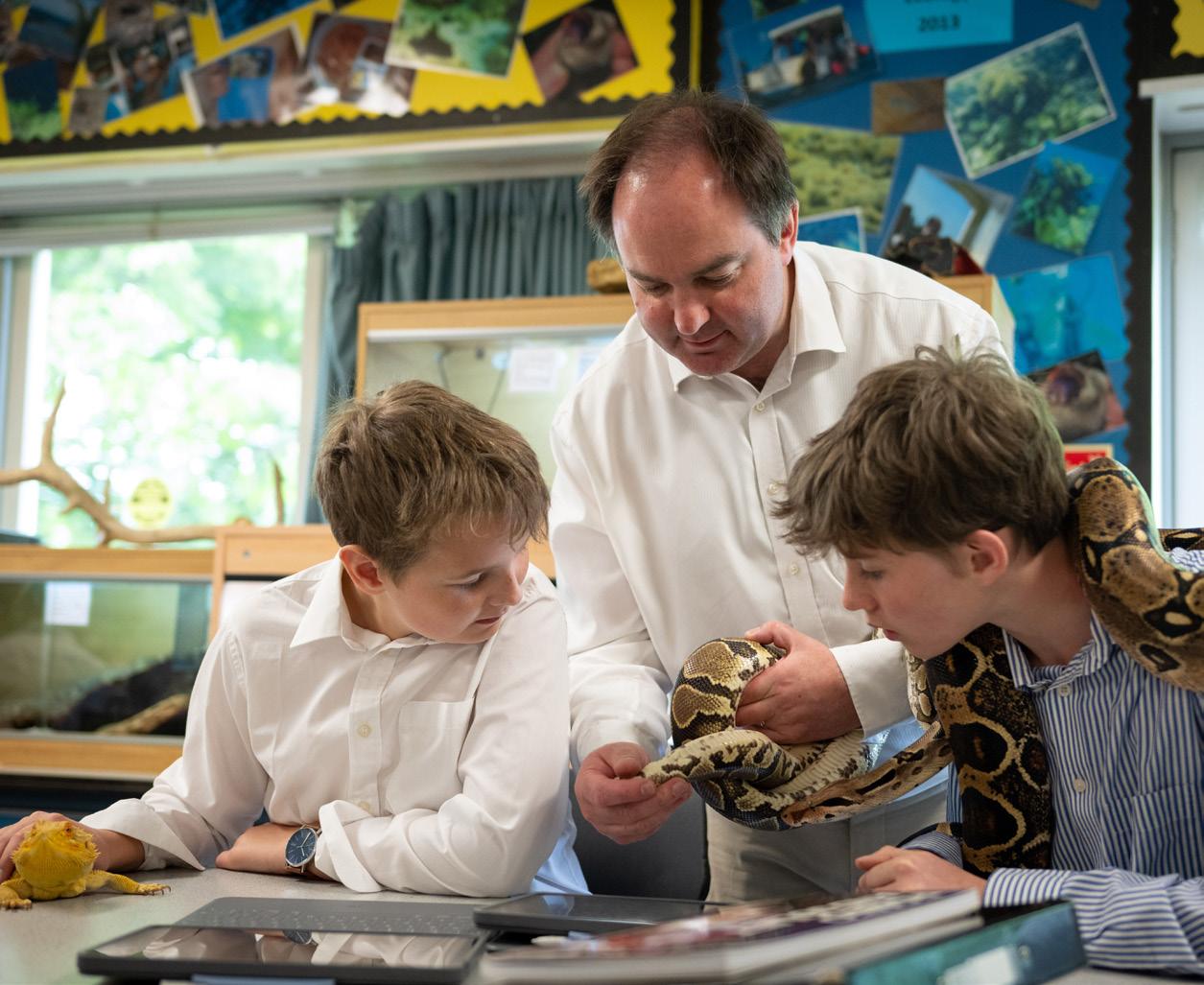
Something that all the boys can understand is the rational basis for better grades. Boys know that, wherever they sit on the academic spectrum, getting the best grades they can is the single most important thing they can do to open doors. And, while I don’t believe that exams are everything, I want want each boy to have as many choices as possible.
The boys’ GCSE grades are as good as they’ve ever been. At the time of writing, a whopping 40% of Radley’s grades at GCSE were awarded Grade 9 and 87% at 7-9 (As or above in old money). 23 boys have been awarded ten 9s or more, significantly beating the target of ‘nine 9s’ that, our data shows, a Radley boy needs if he wishes to have a strong application to Oxbridge.
A-LEVEL EXAM RESULTS
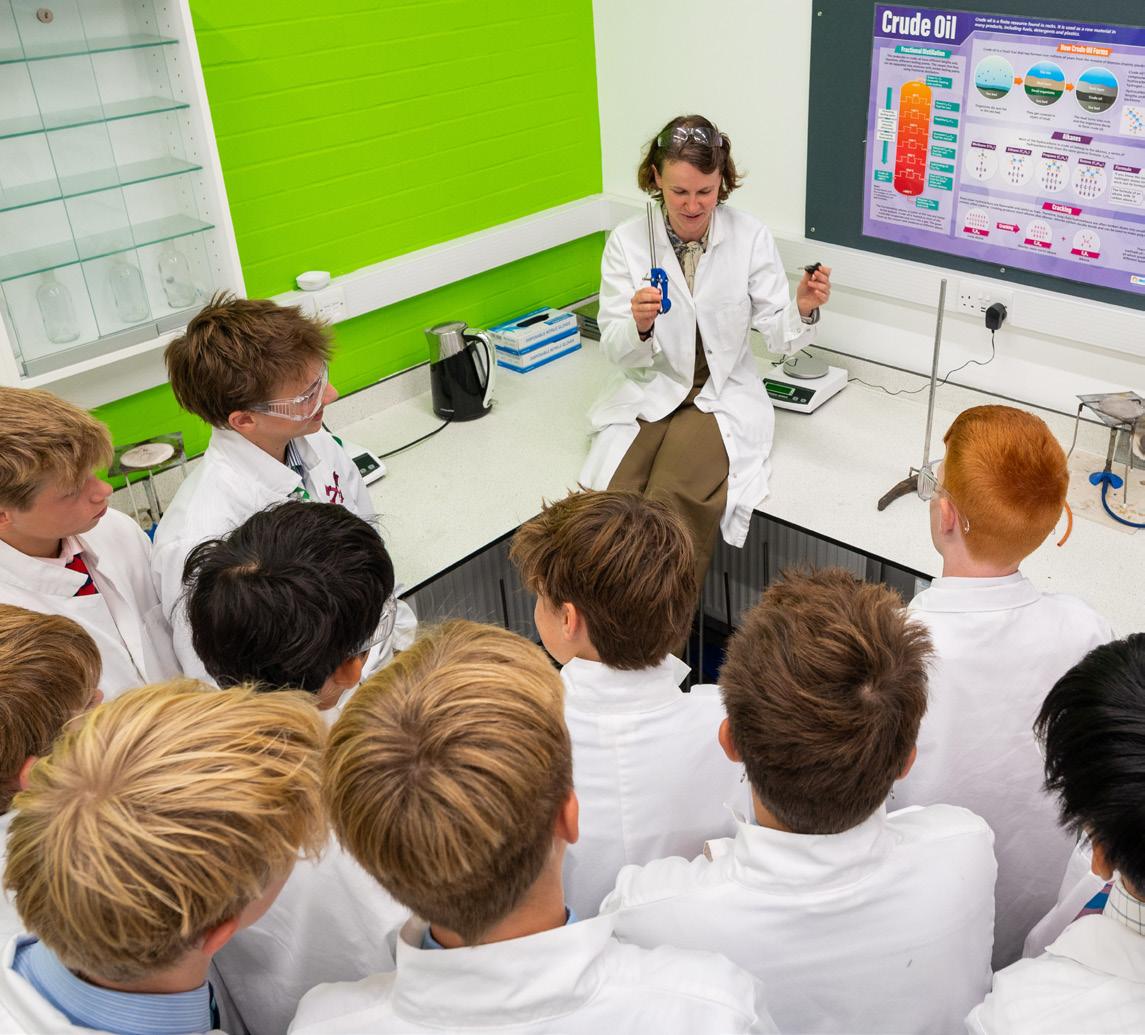
But I’m very keen that Radley’s academic culture isn’t judged simply on raw attainment. The best schools judge themselves on their pupils’ progress regardless of their varied starting points.
Here, the challenge of motivating teenage boys becomes emotional as well as rational. It’s about relationships as well as rationality: do the boys want to please their don? Do they feel a little embarrassed when they’ve let them down? For we dons, it means taking the time to reward and to recognise those boys who, regardless of ability, have put in just that little bit more effort in this test than the last one.
And it’s why I hope you’ll have noticed us ‘beefing up’ the academic rewards across the College: more
GCSE EXAM RESULTS
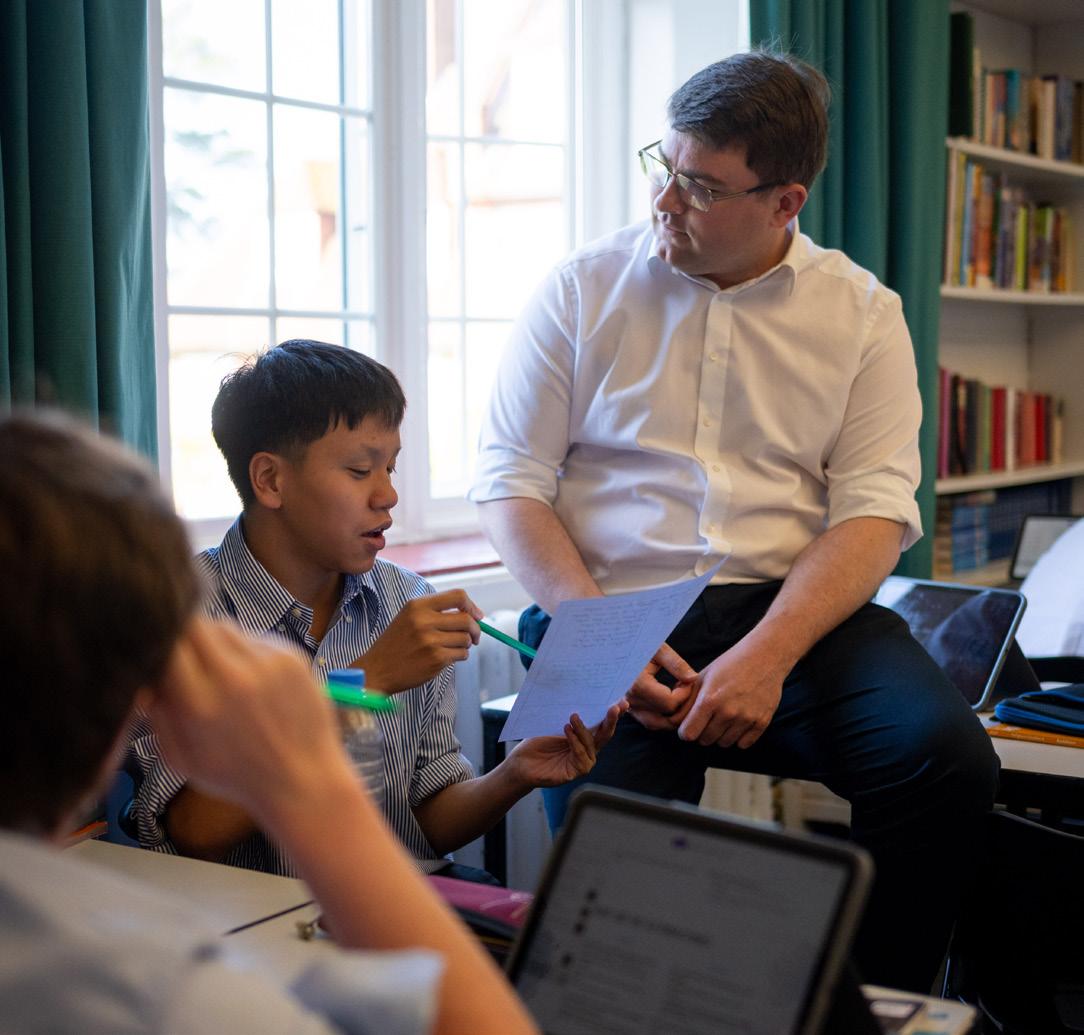
Distinctions ‘catching boys being good’, handwritten postcards, Academic Colours ties, and now the very best of the boys’ work displayed next to the original Books of Copy and Distinction in our beautifully refurbished library.
But all the rational and emotional motivation means nothing unless we also ‘clear the path’ and support the boys to make good academic decisions. It’s why we’ve introduced supervised study for the Sixth Form and are setting aside specific time in the school day for boys to read. We know what teenage boys are like and if, by making small adjustments, we can ‘nudge’ boys into better academic habits then, although they might not thank us now (!), we know that, one day, they will.
Grand Designs
Located between the artwork of Clocktower Court and the laboratories of the Science Block (a position of both geography and thesis), the open-plan character of Radley’s Design Engineering facilities feels appropriately like an opening of possibilities. Wooden workbenches conceptually familiar to a Victorian schoolboy are set alongside industrial-grade Trotec 360 Speedy laser cutters. Display areas are crowded with student projects, almost every flat surface reserved for making or the already-made.
A Radleian’s imagination is especially tangible here. The pale plastic replica of a carnivorous dinosaur skull, dimensions identical to the original Wyoming fossil, balances atop a motion sensor – programmed to be activated by, and dispense information to, passing museum visitors. On the same shelf sits another GCSE project, the ‘Maths Wizard’, a psychedelic wedge adorned with a trio of friendly aluminium buttons and a screen for
displaying arithmetic questions. Department head Robin Johnson, a quarter-century College veteran, recalls a student who 3D-printed an artificial forearm from stacked layers of photocurable resin. “GCSE students are given questions by the exam board that they need to design around, to solve a problem. It was all to do with sport, and he wanted a prosthetic to hold a tennis racket. It was quite cool!” A-Level efforts are more complicated.
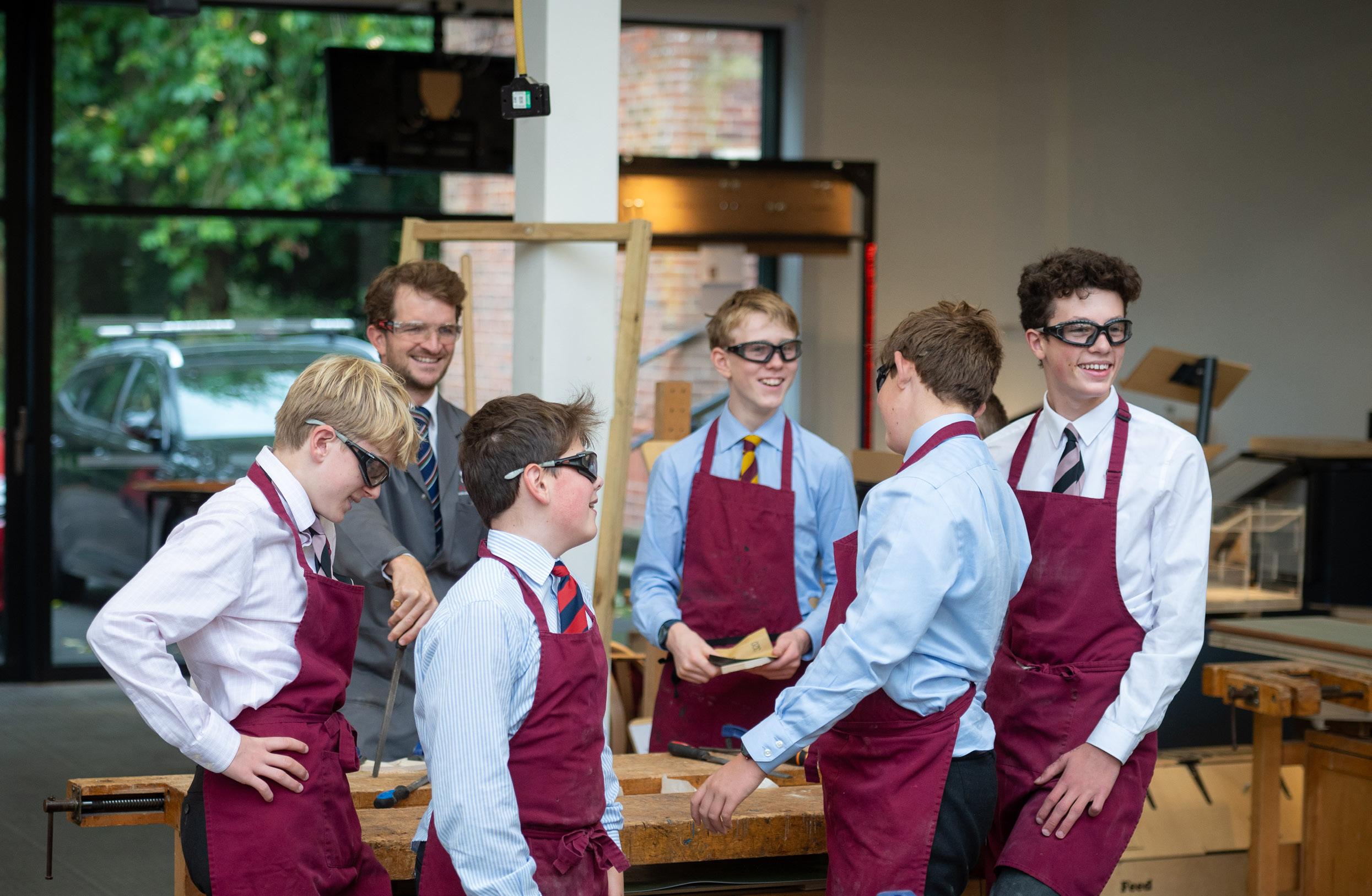
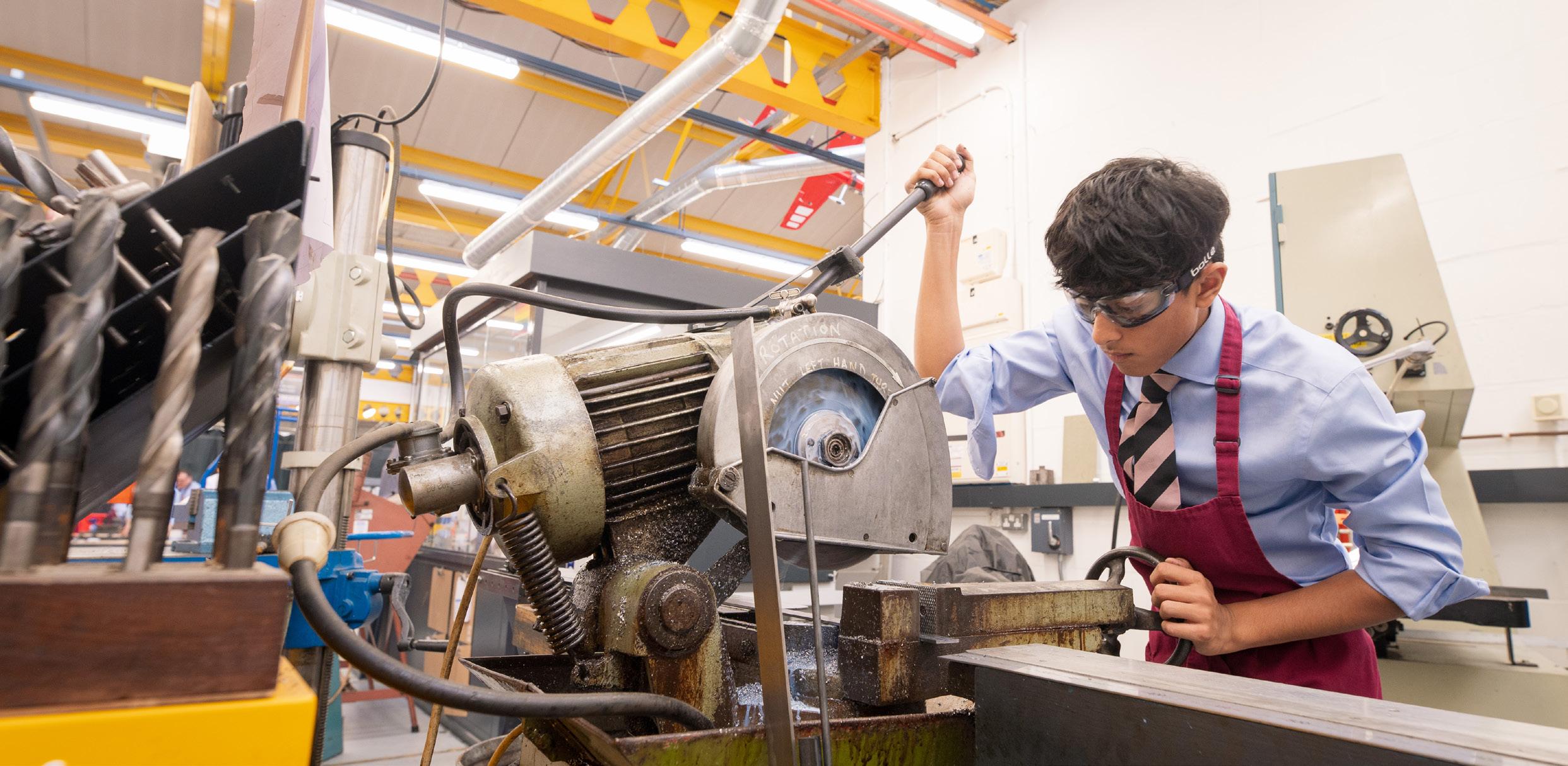
Robin scrolls through the 113 PowerPoint slides reviewing the work of OR Rex Singlehurst (2020, J) – the construction of a training sled, exercise equipment that tests a user’s ability to push and pull against resistance. The mouse wheel spins, and months of Rex’s thoughts and labour blur into abstraction. “This is him doing a bit of research quite early on,” says Robin. “Then they write a specification, setting out what they’re trying to achieve ... Some early sketches … then it moves into a bit of CAD [Computer-Aided Design]. It’s real, real problem solving.”
Display boards around the department list core tenets - ‘Discover, Adapt, Sketch, Prototype, Create, Inspire, Explore, Fabricate, Solve, Integrate,’ reads one, ‘Deconstruct, Imagine, Stimulate, Critique, Improve, Develop, Mockup, Refine, Test, Pioneer,’ another. Robin emphasises another skill – embracing mistakes. “Boys will fail. They will get things wrong. You want them to fail, but fail fast, so they learn something and move the design forward.”
An example of this comes from Frank (V, C) who, as a Shell, embarked on a project to build his own guitar. “I remembered the old saying, ‘If you want something done well, then do it yourself,’ and figured that it couldn’t be that hard,” Frank relates. “In hindsight, I was
wrong as it was extremely difficult but, as playing guitar is my passion, and a tailor-made instrument was my dream, the final product far outweighs the struggles.” Research produced an ideal template – the Fender Telecaster, an often-customised 1951 design once cradled by George Harrison during the Beatles’ rooftop gig, more recently enjoyed by the likes of Graham Coxon and Avril Lavigne, and idolised by Frank for its “bright and versatile sound”. He cut the
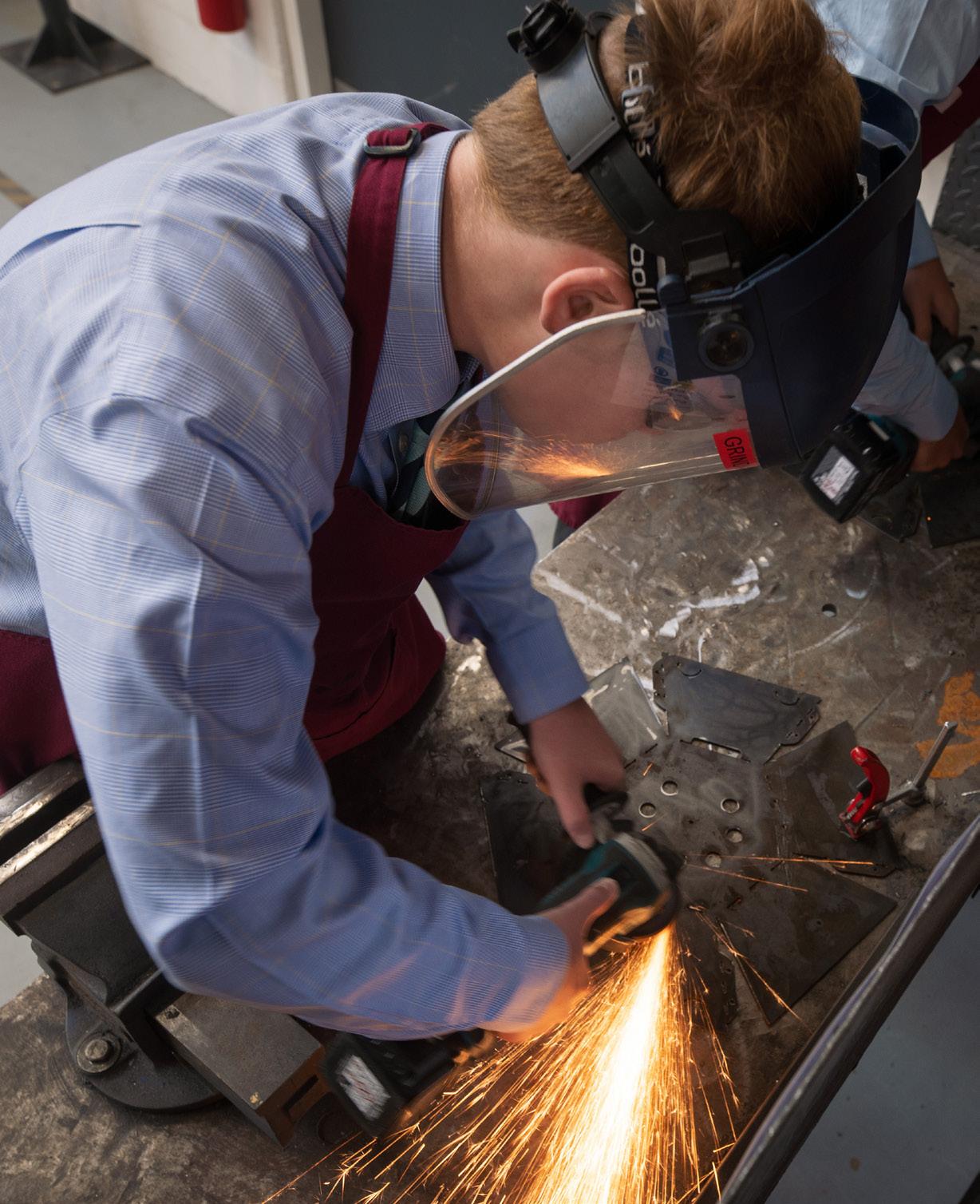
neck from maple (“Not too hard to shape … the hardwood factor will prevent bowing or warping”), before adding a rosewood fretboard inlaid with the silhouettes of soaring birds (“Whilst playing, you use them to gauge where specific frets are”). The guitar body was built of alder (“produces natural oils to keep water away”), coated initially in a glossy mix of cobalt and boathouse-blue wood stains – with a final ‘blueberry burst’ respray, “the parts came back looking like pieces of artwork.”
Yet just as important are Frank’s admissions of error – forgetting to carve the cavity for the truss rod (a metal bar which internally stabilises the neck), not liquifying the bird inlays’ resin to remove air bubbles, and an initial misalignment of the bridge. An acceptance that progress is not always linear also proved key – at one point, “the fretboard was looking very green, burnt and messy, to the point where I had left it out to dry and I
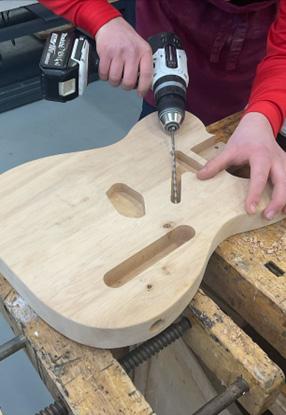
left a note saying, ‘do not bin’, but I’ve learnt to trust the process!” Rex Singlehurst’s A-Level work involved similarly unflattering steps –the training sled’s earliest prototype was an upturned table retrieved from a skip.
At a recent Prep Schools’ Conference, Warden John Moule told the audience, “Boys must learn to fall over.” Design Engineering at Radley exemplifies this moral –without education via blunder, the innovation and creativity evident within its workshops and classrooms would be impossible to achieve. Frank has since played his finished guitar in the College’s own Winter Jam and Battle of the Bands. “You never know what you are capable of doing,” he comments. “No one is born able to speak a new language, renovate a bathroom or play tennis. In life, all your skills are acquired, so there is no excuse for saying, ‘I can’t do it,’ because I think that you will find that, more often than not, you can.”
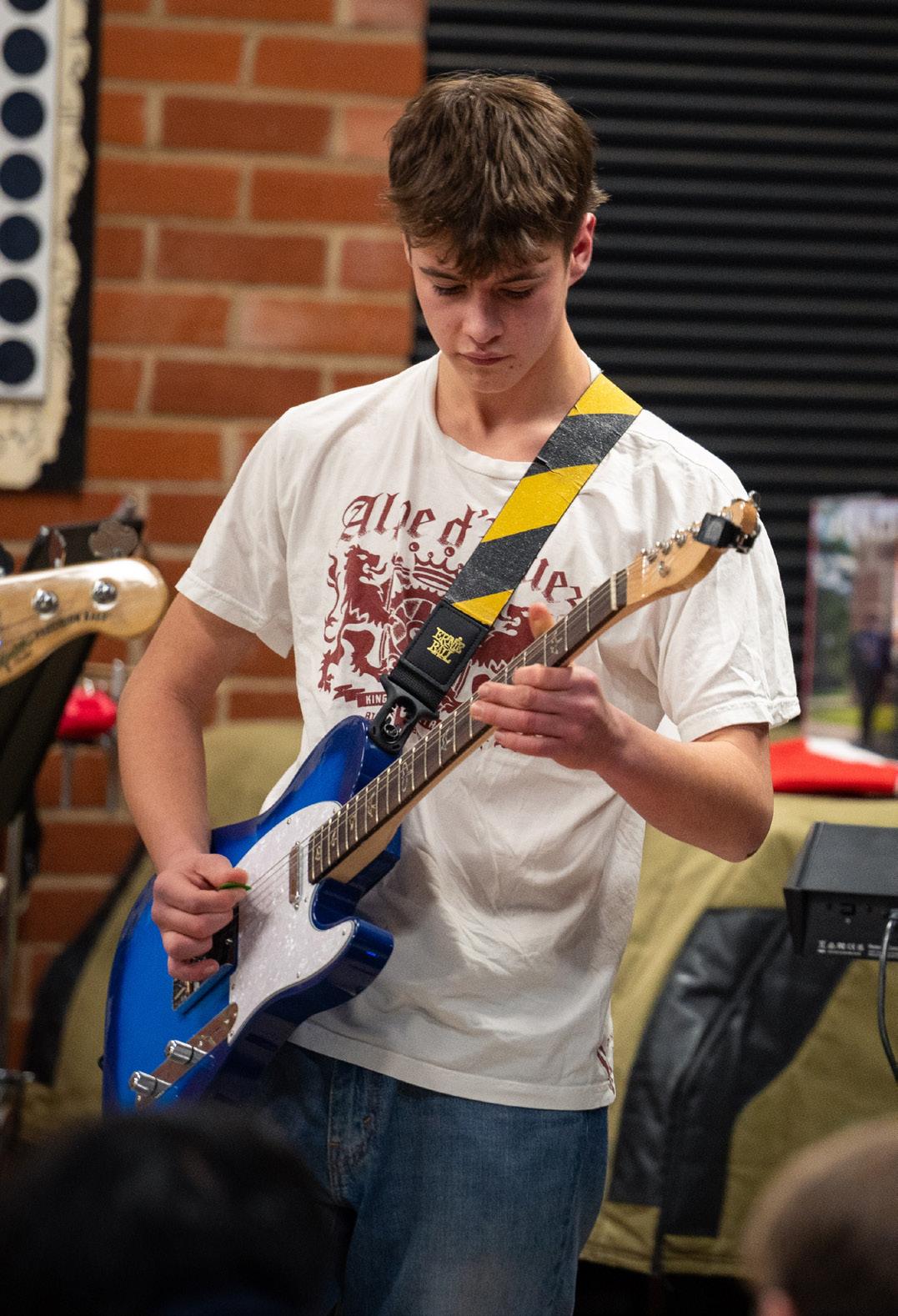
Green Shoots the growth of croquet at radley
Radley Croquet has come on a little since the days of a cup of tea and a bash on the D Social lawn for a Wednesday afternoon activity for half-a-dozen boys. Harry Crump, Deputy Head (Co-Curricular) tells us about the rise and rise of croquet on the lawns of Radley.
A move to the outfield of the 1st XI cricket field was not without controversy, but enabled a multiplication of the numbers of boys playing, as one lawn grew to four, which grew to five. Lockdown tried to get in the way of croquet expansion, but virtual croquet proved to be perfectly manageable, with challenges such as ‘the triple peel’ being attempted at various locations across the country.
Additions to the Radley Croquet calendar have multiplied. Inter-Social Croquet (an 88-player event on the final Friday of the Summer Term) was established due to popular demand, with a quirky trophy comprised of two broken mallet heads crafted by Mrs Tufnell. School matches began to build, particularly once a colleague at Eton set up a Southern Schools’ Tournament
at Surbiton Croquet Club (one of the World Championship venues in recent years). Radley were inaugural winners in 2023, and defended that title in 2024, before the tournament became the National Schools’ Association Croquet Competition, which Radley won in 2025, its first year. The number of schools represented there has grown (most recently this was six, with 38 players involved), which has led to further fixtures: Radley have played Winchester, Marlborough, Charterhouse and Abingdon over the past couple of years.
A major move forward was establishing a membership with Blewbury Croquet Club, where two beautifully-kept lawns (or ‘courts’, more correctly) have become our ‘home’ ground for fixtures, and where we play our staff v boys
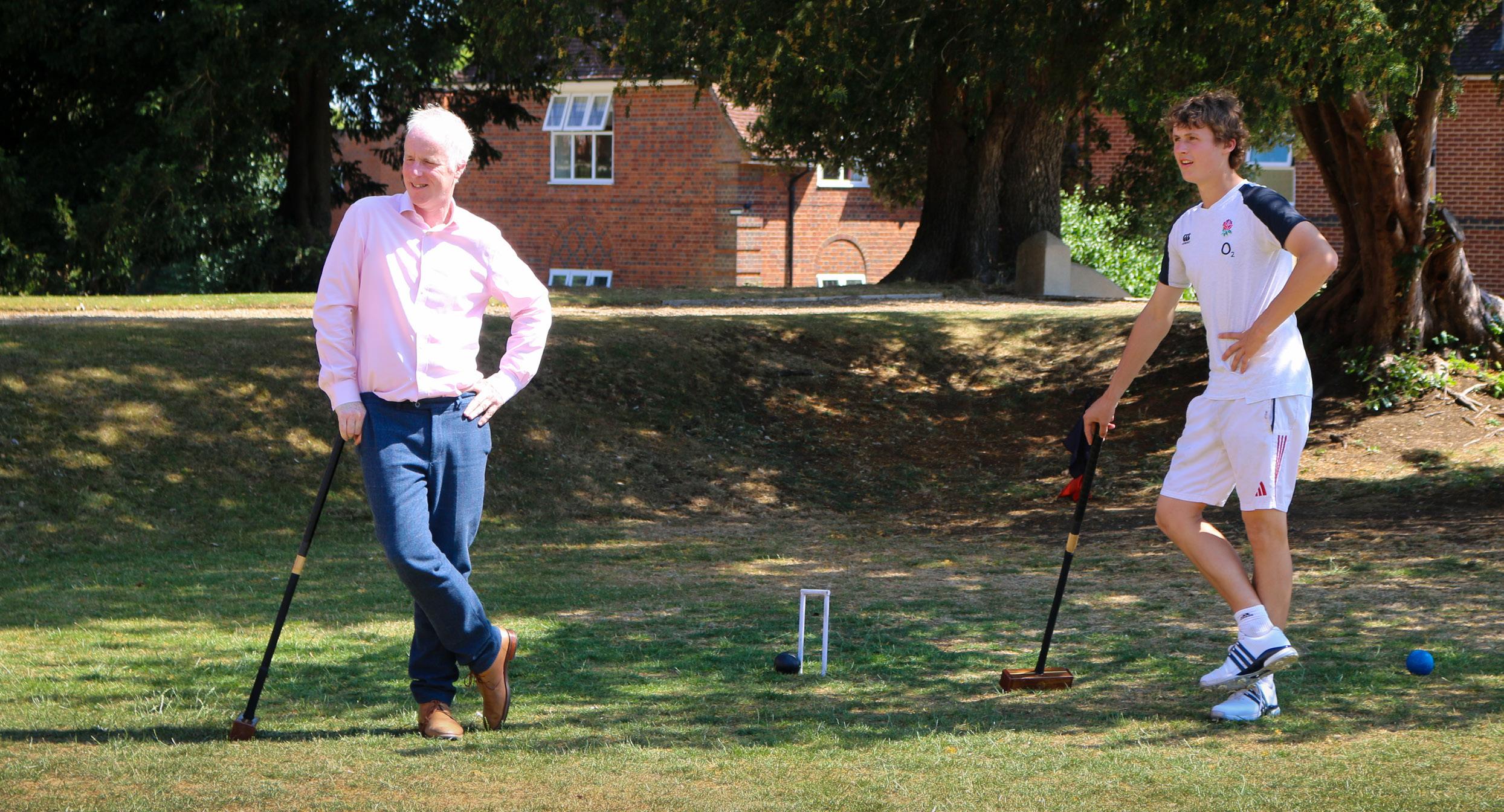
matches, host staff evenings, and where the Croquet Society visits around once a month throughout the year, on Sundays.
The Radley College Croquet Club Open Pairs’ Competition must not be forgotten. This is now at the end of its fourth season, and sees boys, staff members from Common Room and the operational side of the College, and family members
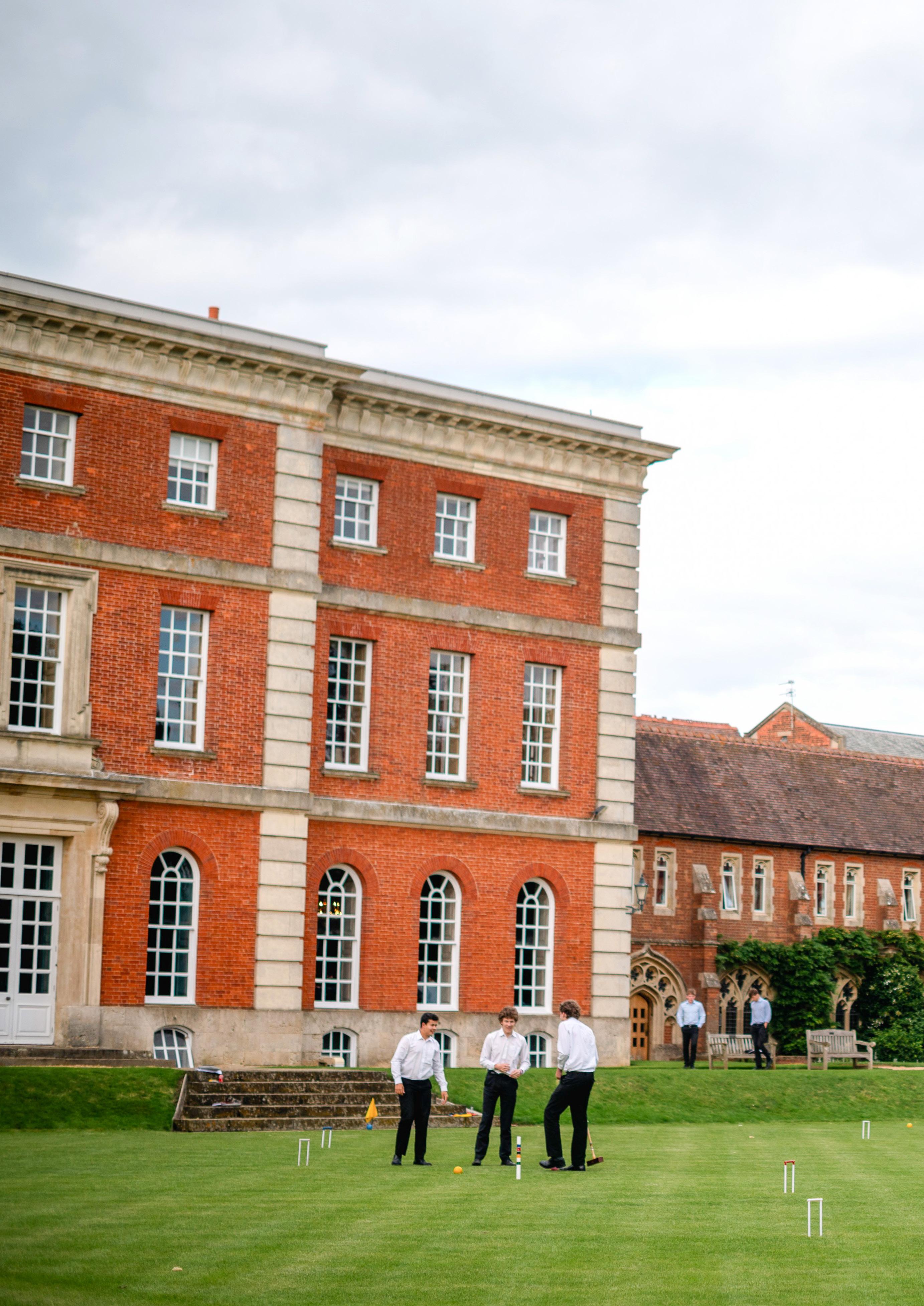
living in the Radley community coming together to play a friendly but fiercely competitive doubles tournament across the summer term. This year, 208 players took part, and the tournament comprised 101 matches played over nine weeks. The challenge at the latter stages is always seeing how to fit in the last rounds of matches as exams and/or exam leave bite.
In 2024, all four finalists were boys, as the effect of more consistent training paid off. Spare a thought for each year’s Senior Prefect, who is obliged to play with the Warden who is both rather good and rather good at instruction...

In 2024, croquet was added to the New Boys’ Games Circus, introducing every new Shell to the game on the rather beleaguered Mansion Lawn. 2025, though, will see this transferred to the Astro which - while it does not have quite the same picturesque surroundings, does have the benefit of absolute accuracy and a turf length akin to the lawns played on at Blewbury and beyond.
A last word for one of the highlights of the season, which is the annual OR match at the Hurlingham Club in London, where the year’s first team head to the finest lawns to be found on these shores (and the world) to take on a group of Old Radleians and/or Hurlingham members with a Radley connection. This is always washed down with a Hurlingham BBQ burger in fine company: the ages represented stretch from 16 to 80, with the Radley bond wonderfully evident as ORs reminisce with current boys about their Socials and memories. It is a special thing.
And Radley Croquet’s main claim to fame? Perhaps it is fame itself: the Instagram post declaring Radley’s National Schools’ success (accompanied by a pretty impressive roquet shot and ensuing celebratory leap) is @radleycollegeoxon’s top hit, having been watched 101.6 thousand times. Croquet is clearly quite the thing.
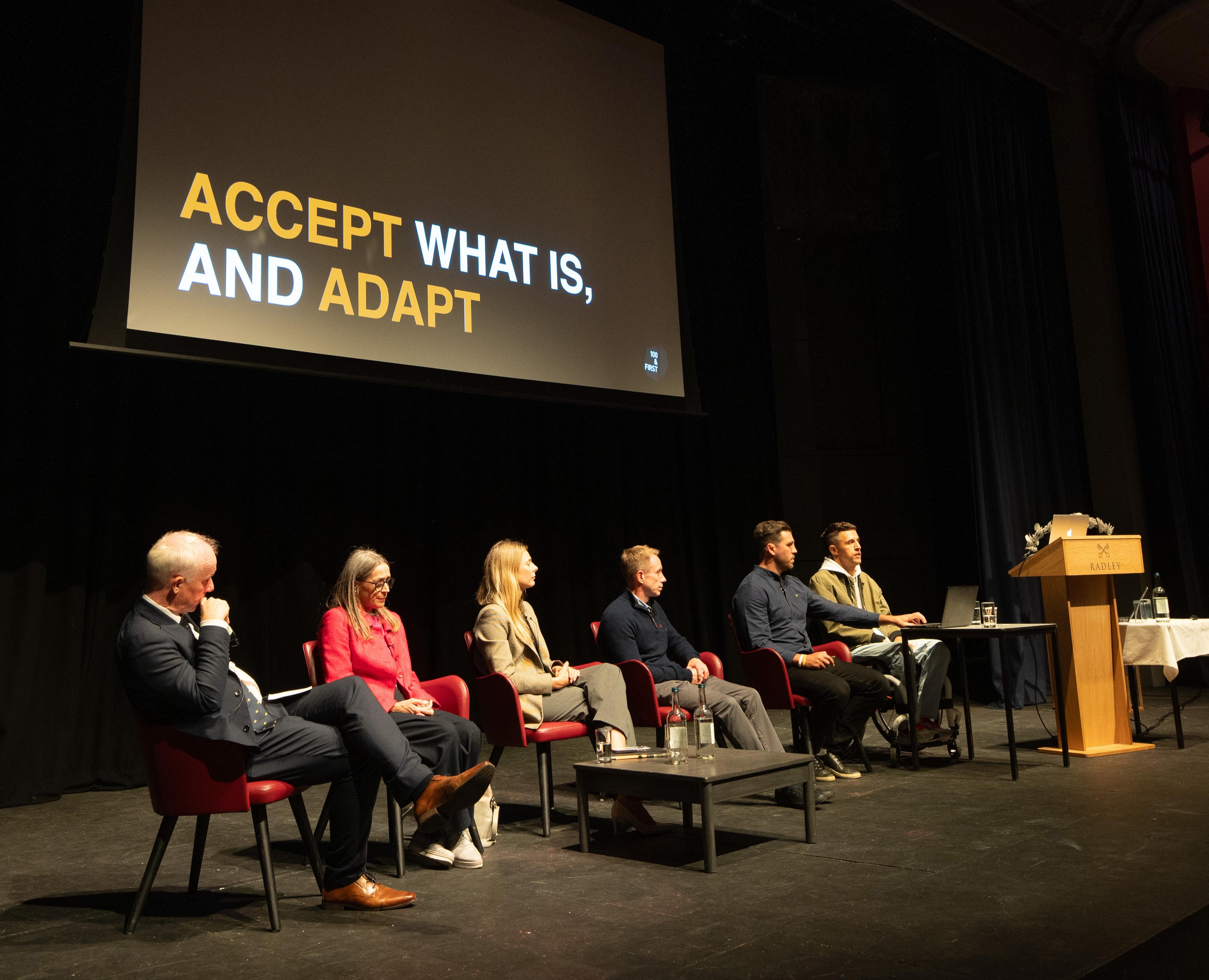
Resilience Conference
We were delighted in September to welcome so many prep school leaders from across the UK to a special conference on the theme of ‘resilience’. Attendees were treated to a sneak peak of Silk Hall in the final stages of its renovation for a special concert displaying the full array of College musical talent. Donning high-vis jackets and hard hats, boys played a mix of classical, jazz and rock.
Entitled ‘Resilient Children, Resilient Families: Building Strength Across School Communities’, the conference opened with artist and author Henry Fraser, who spoke about the challenges of accepting and adapting to strenuous circumstances. Having lost the ability to move
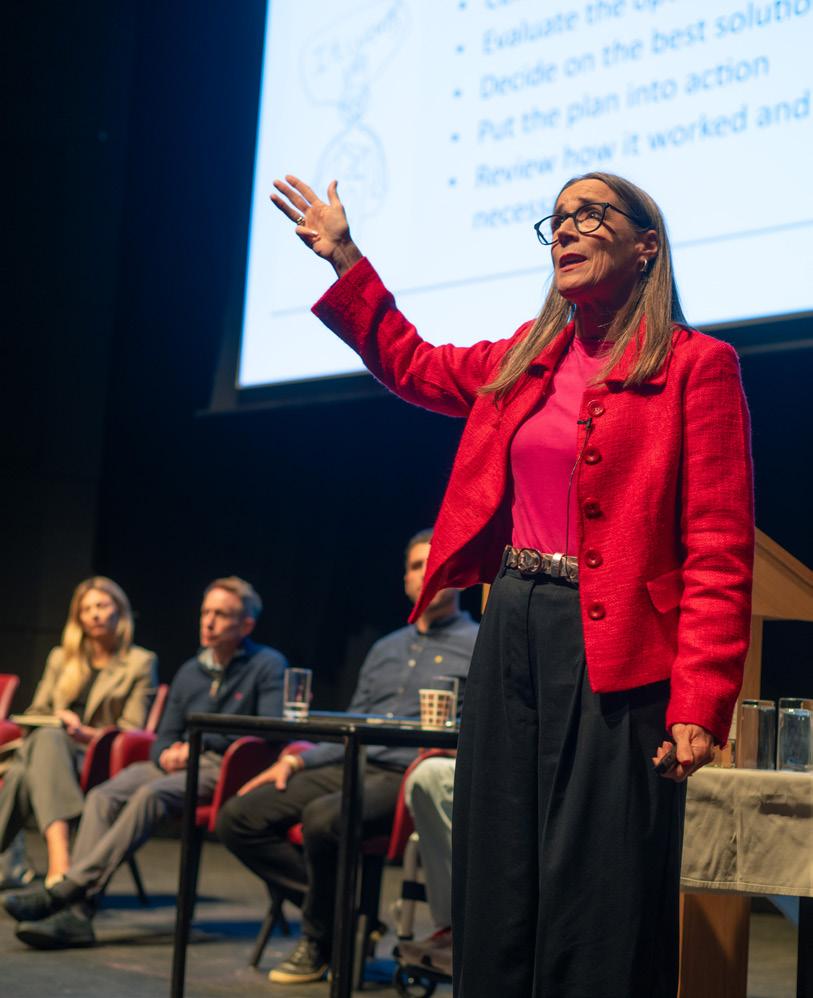
most of his body following an accident at the age of 17, Fraser posited gratefulness as a motivational tool and mood enhancer, relating his personal experiences of overcoming extreme challenges and looking out for others. Anita Cleare, an award-winning parenting speaker, writer and coach, took the podium with a crucial question: “What can parents do to build resilience in children?” She encouraged caregivers and educators to teach (and themselves learn) empathetic listening and problem-solving skills, thereby establishing a healthy balance between supporting young people and enabling self-reliance.
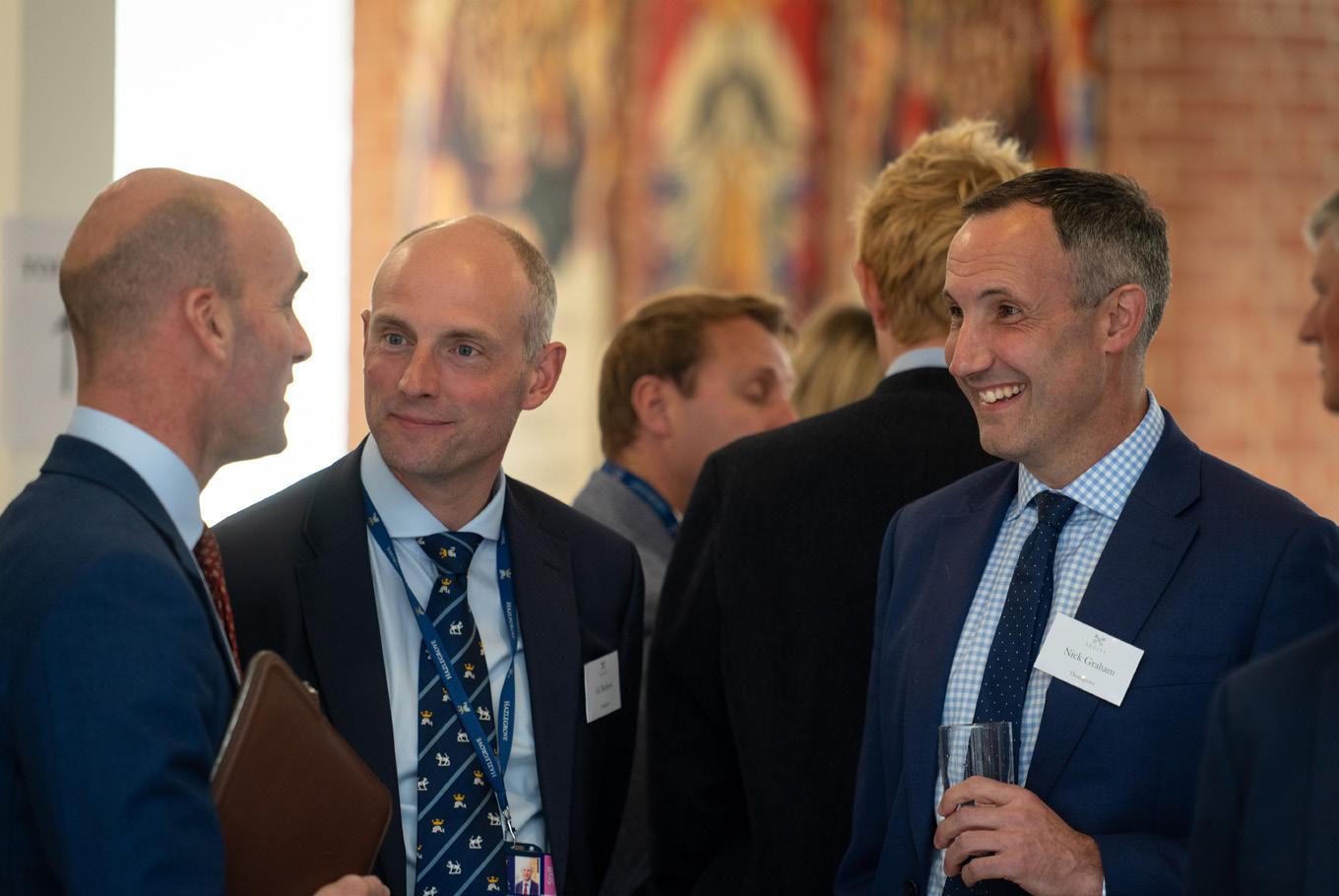
as much as possible – is an obvious, yet often underestimated, method of naturally establishing such dynamics, though running specific exercises to increase staffroom cohesion can also be effective.
Finally, Jo Cruse, Head of Education and Strategy at 100 & First, and sports psychologist (Saracens Rugby and Mercedes F1) David Jones brought up the resilience of staff teams, something nurtured by well-considered professional structures and clear communication. ‘Social capital’ –trying to actively talk and listen to people
Prep Heads commented that it had been a highly thought-provoking and stimulating conference and welcomed the opportunity to exchange ideas around questions such as to what extent should teachers allow students to fail. We were fortunate to have such an engaging and qualified panel of speakers and our thanks go to all involved.
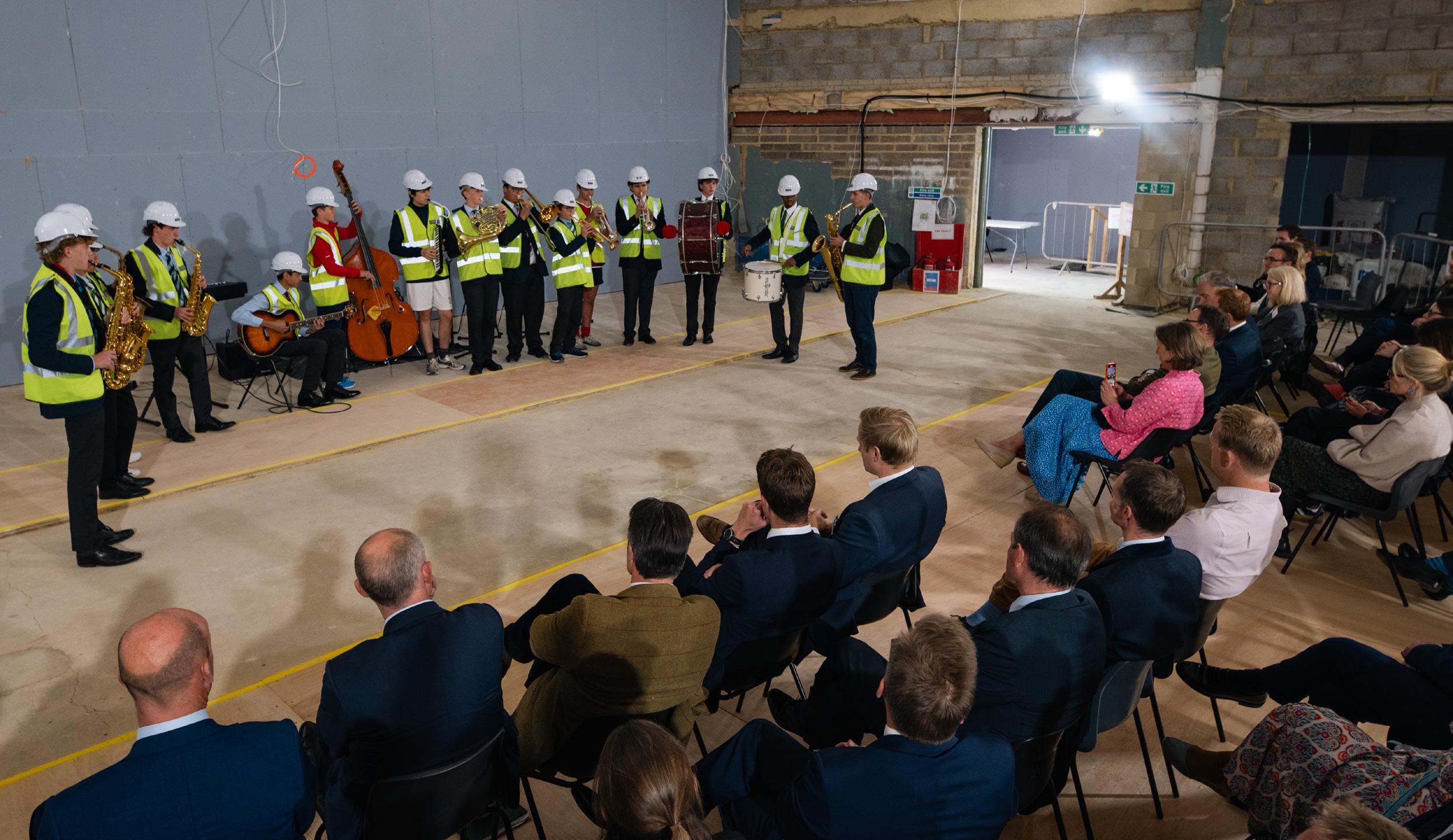
Back in February, Radley College hosted an audition day for the National Youth Theatre, and after a practical ensemble workshop and formal monologue auditions, 13 Radleians were offered the opportunity to join the theatre company, beating almost 5,000 other applications from across the UK. This summer, those boys travelled everywhere from Glasgow to Bristol to complete their NYT induction courses – these are their stories…
“On the first Saturday, we did our ‘NYT casting’. Everyone on the course performed a monologue of their choice to show the directors of the course what they were like individually on stage and to snapshot skills to any external directors looking for actors for films or plays elsewhere.
I really saw how unique everyone was, and it was so fun congratulating everyone as it made our bond even stronger while sharing the love for drama. It didn’t matter what age or gender you were – everyone was supportive and kind to one another. The directors and pupils made the course feel like home to me ... the most thrilling and exciting experience I have had.”
– Ned (V, A)
“When I began the NYT intake course, I found myself initially confused by the relaxed nature of the experience itself… we would spend large portions of the day doing drama games and devising pieces in groups. But after about a week, I realised that the teaching methods were, in actuality, quite effective. After the third day, I already had an understanding of how to function as part of an ensemble. On the fifth day, we did an interpretive dance class, allowing me to understand that it is not only the lines, but also the body language that can convey a plot or concept. Ultimately, this experience wouldn’t have been possible without the aid of the drama work done at Radley.”
– Kumar (6.1, F)
All the world’s
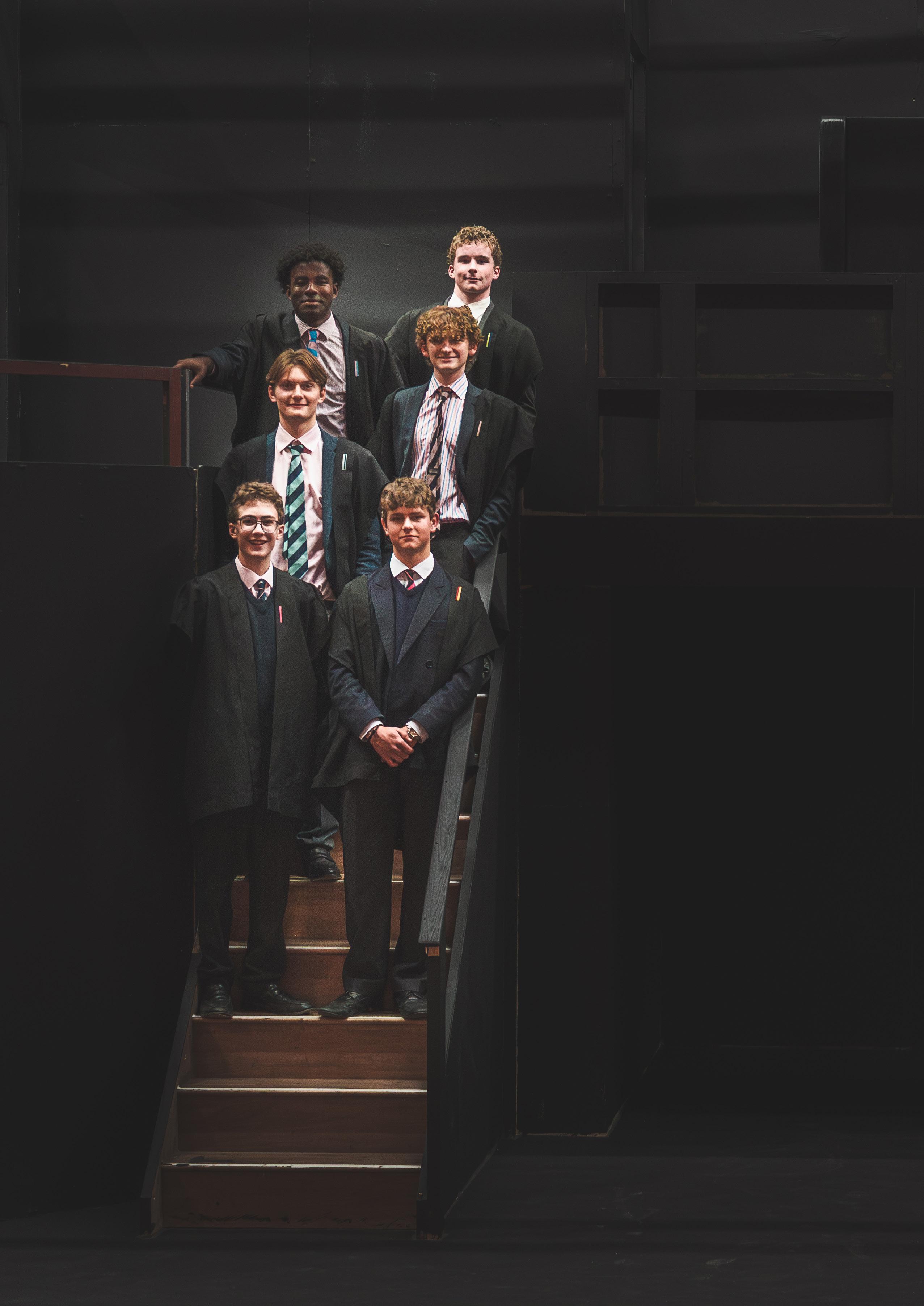
“When I first learnt that I had been accepted into the National Youth Theatre, I had high expectations of what the course would be likeexpectations which were not only met, but exceeded. It would be fair to say that I loved every minute of my intake course experience and would recommend it to anyone interested in drama. Over 10 days, we learnt several dramatic and acting techniques before eventually working as a group to devise a performance that would be shown to parents on the final day. It was an honour to spend time with such unbelievably talented individuals, and I have made so many friends that I know will last a lifetime. Moving forward, I cannot wait to partake in the multitude of courses the NYT has to offer and perhaps even perform in a few shows!”
– Jovan (6.2,
J)
“The boys were unanimous in their enjoyment of the course, but I think what inspired them the most was being with likeminded drama enthusiasts! They will no doubt have acquired many new drama skills and experiences, but perhaps the most important outcome is the bonds and friendships they will have made along the way and will continue to grow during their time with the NYT.”
– Victoria Buse, Director of Drama
world’s a stage
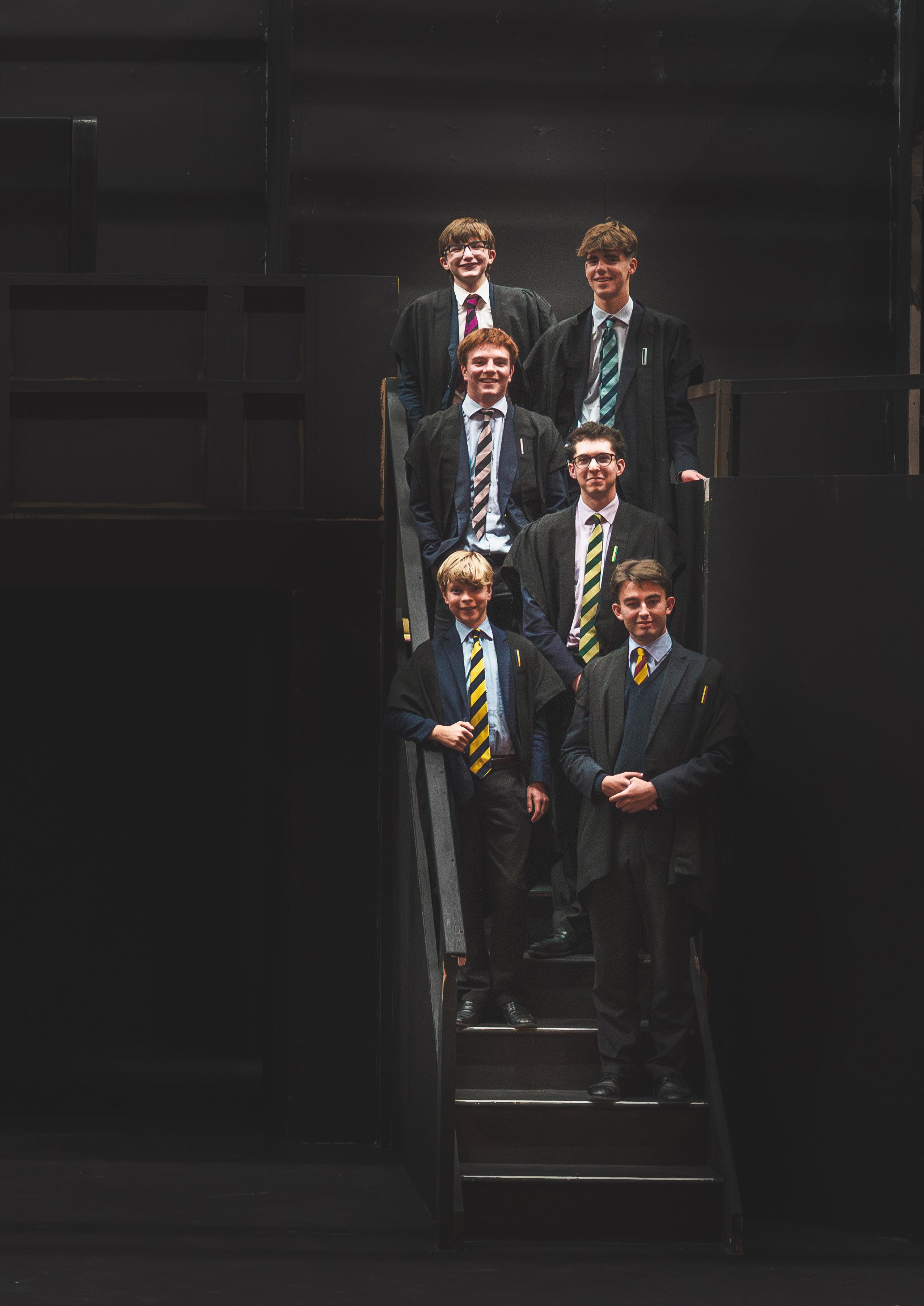
Sports Round-Up
Alook back at the summer term’s highlights with Radley’s Director of Sport, James Gaunt.
LAWN TENNIS
The Lawn Tennis Club had a record number of members in 2025 and enjoyed another successful season of inter-school competition. Bigside won against old adversaries Bradfield, Harrow and Tonbridge and were runners-up in the RHWM (Radley, Harrow, Wellington, Marlborough) quadrangular and in OXIST (Oxfordshire Independent Schools Tennis).
The Club toured to La Manga and benefitted from elite coaching from Justin Sherring and David O’Hare – this looks set to become a regular event. Junior players remain extremely strong with wins in the RHWM at U14 and U15 levels together with multiple wins in block fixtures.
The 2026 season looks promising, with elite players joining in the Shells and seasoned Removes looking to secure silverware at Junior Level. Captain of the Club, George (6.2, G) hopes to represent his county at First Class level. The Family Tennis Trophy was won by the excellent Boris (6.2, C) and Henry edging cultured opponents Johnny (6.2, H) and Arthur.
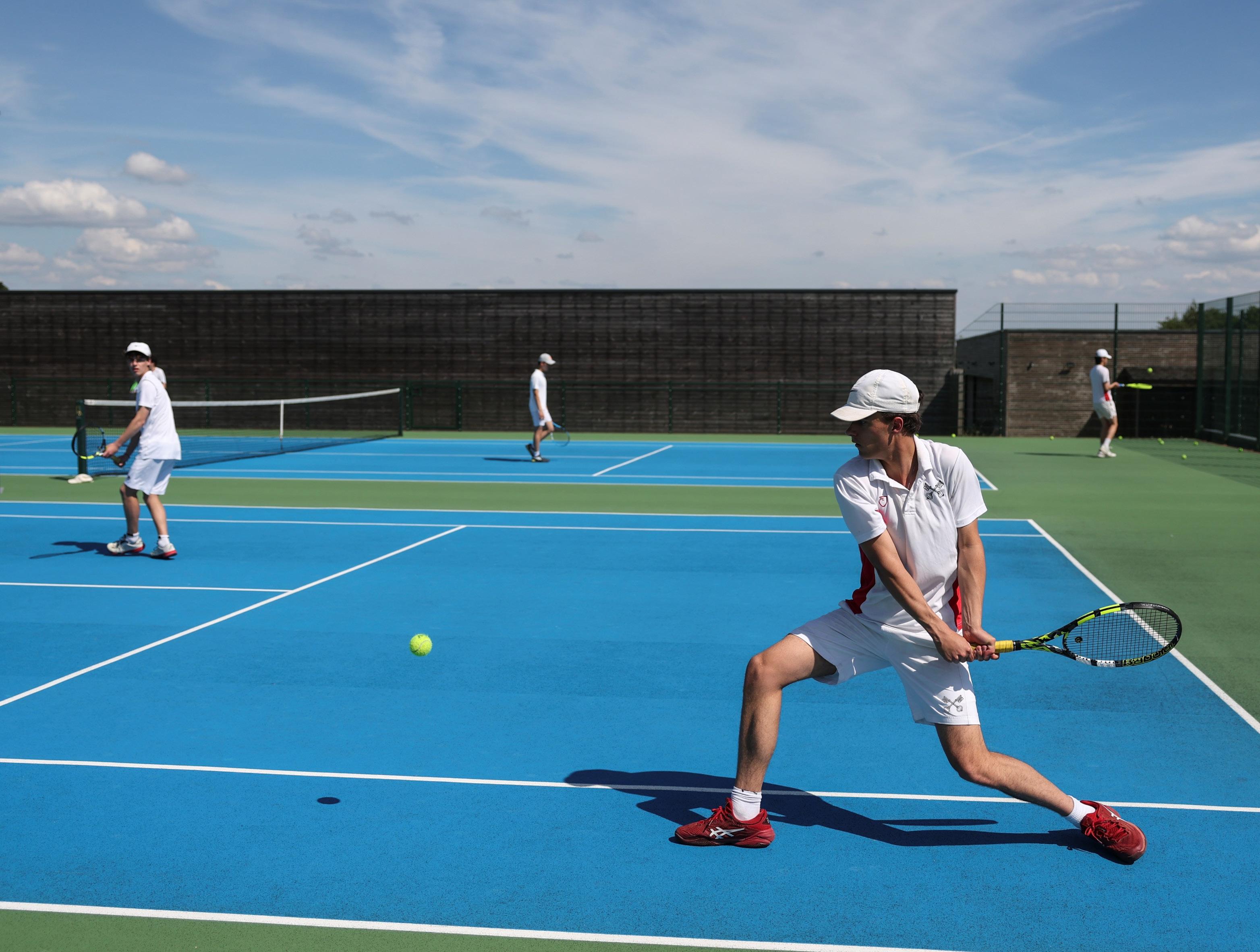
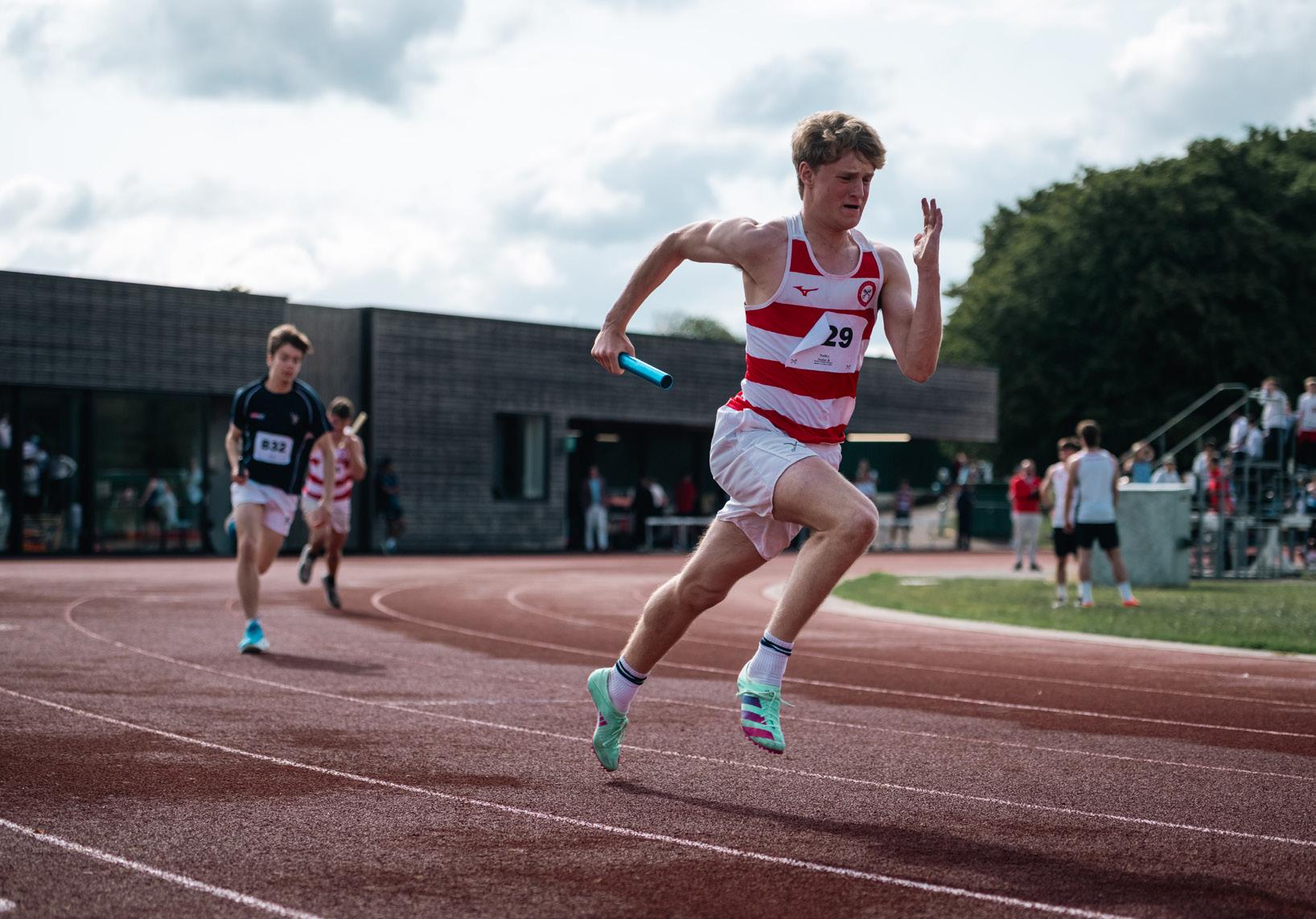
CRICKET
In cricket, 64% of 114 games were won, with 20 matches decided by a margin of two wickets, or under 20 runs. Radley won 15 of those games with one tie.
Manny (6.1, G) has represented Hampshire 1st XI and England U19, Will (V, J) played for Gloucestershire 2nd XI and was selected for the Bunbury Festival. Colts 1 and JC1 won their respective John Harvey Cup competitions by winning all matches in that league.
Over 60 boys participated in inter-school events this summer with long-standing school records broken in the Junior 100m by Albie (R, E) and the Inter’s 4 x 100m Relay. There was also much success on the road with victories for our Senior team at the Winchester and Tonbridge meets.
With 11 fixtures across the term, every boy had the opportunity to run, jump and throw.
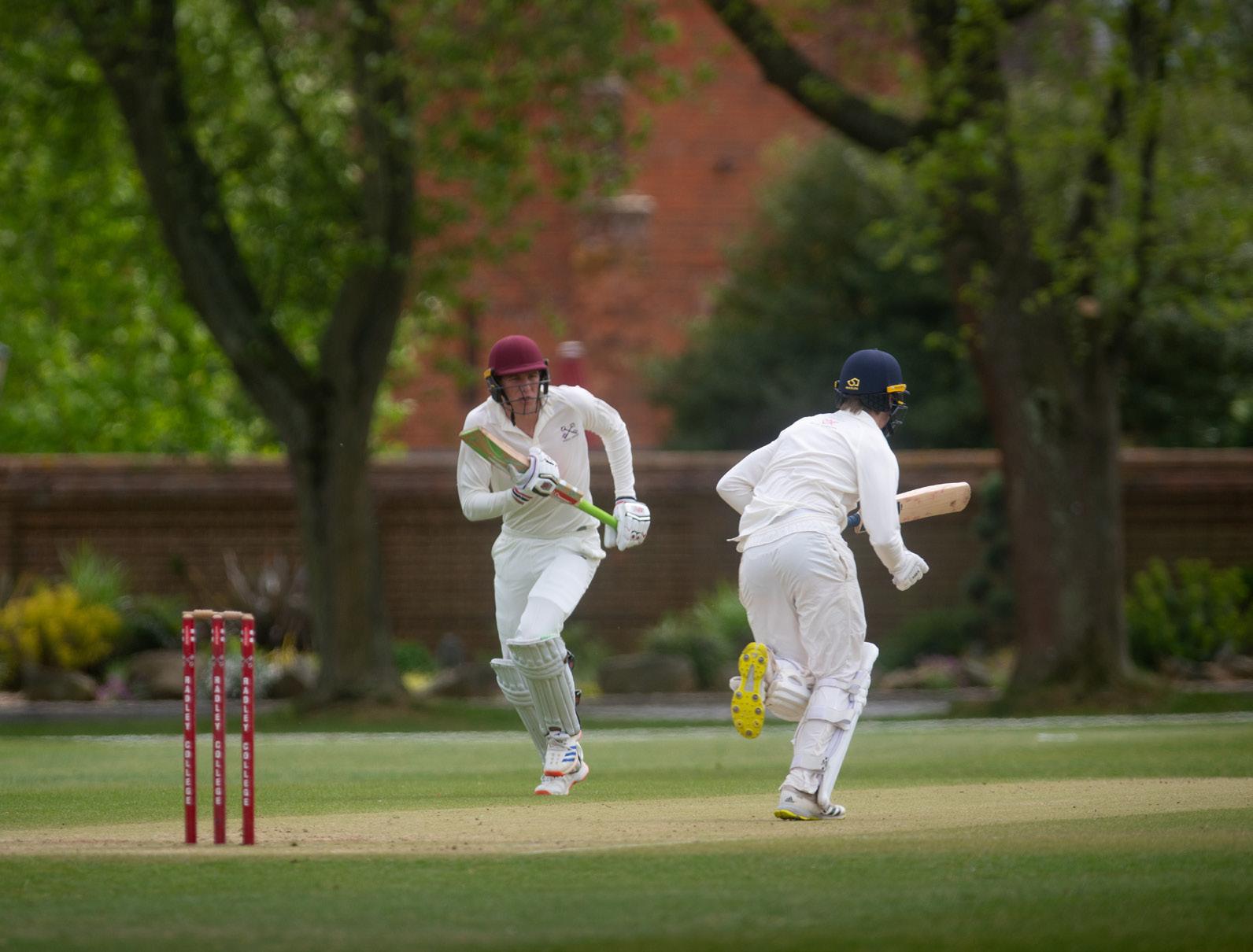
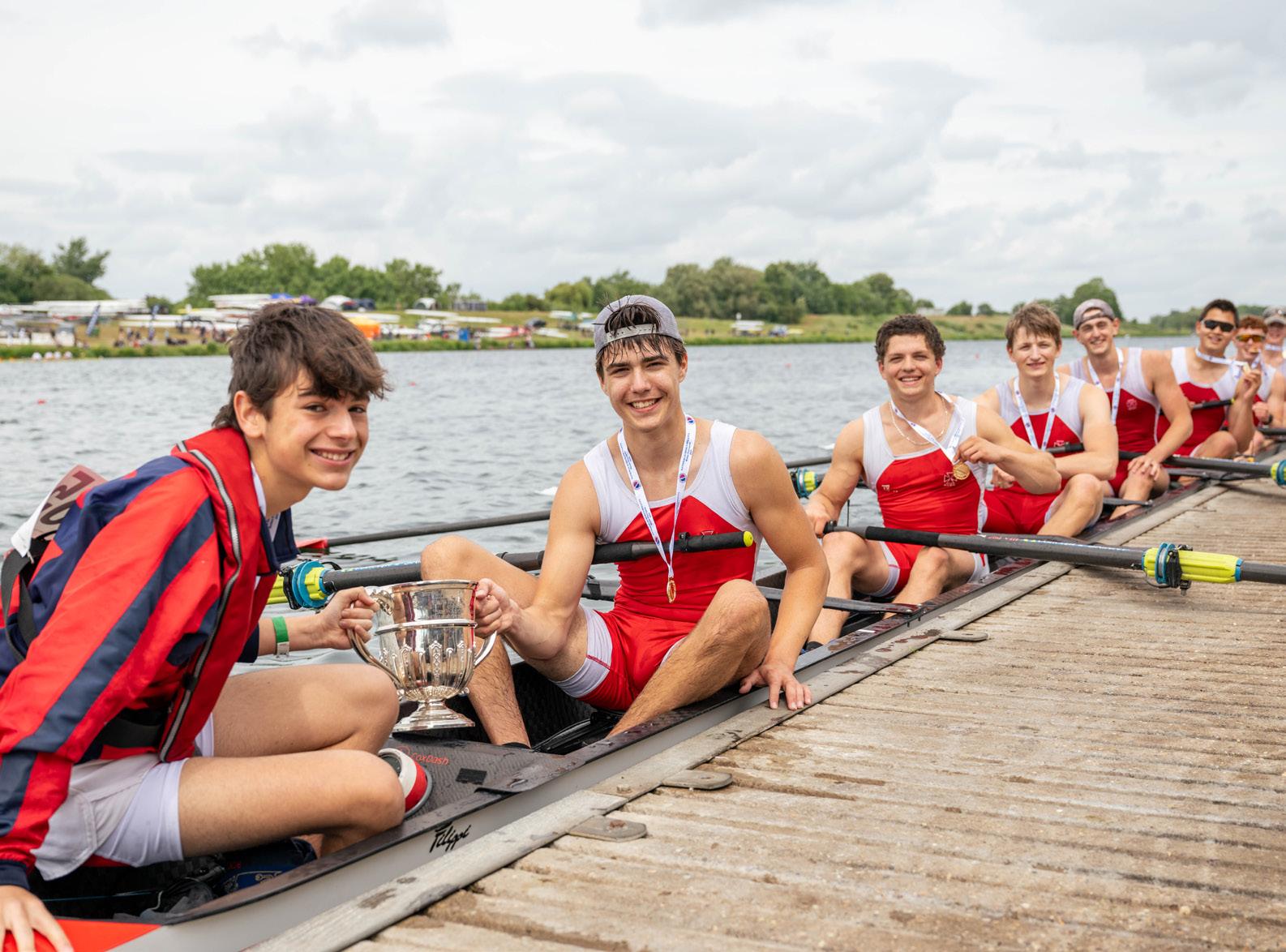
ROWING
RCBC had 160 boys rowing on the Thames last season in various squads. At National Schools the club returned from Nottingham with seven medals – two golds, two silver and three bronze. The 1st VIII made the final of Henley losing by a length to Shiplake College. Four members of the squad went on to represent their country in the summer, including a newly crowned world champion in the 5 seat of the GB eight.
In Memoriam
Max Horsey
The sudden passing in April of Radley’s Head of Video, Max Horsey, profoundly affected the College community. OR Arthur Davie Thornhill (2018, E) reflects on the influence Max had on him and so many ORs during his 36 year career at the College.
I met Max during the first term of my Shell year. My brother, who was in 6.2, had been a part of the Video Unit and had recommended that I go along and see what it was all about. I had a vague interest in making videos before I joined Radley so I thought it might be an interesting thing to be a part of. The first time I walked down the Theatre stairs with my brother, he gave me two very simple instructions: hang up your gown and don’t mention anything about
spiders! As I walked into the old cloakroom under the stairs, I was greeted by Max who was busy editing that year’s Haddon Cup. As I looked around, I was astounded by the vast array of equipment in the room; from gimbals to drones, the Video Unit had everything a young filmmaker could ever dream of. Not one to waste any time, Max reached up onto the nearby shelf and brought down one of the biggest cameras I had ever seen and set up a framing test for me,
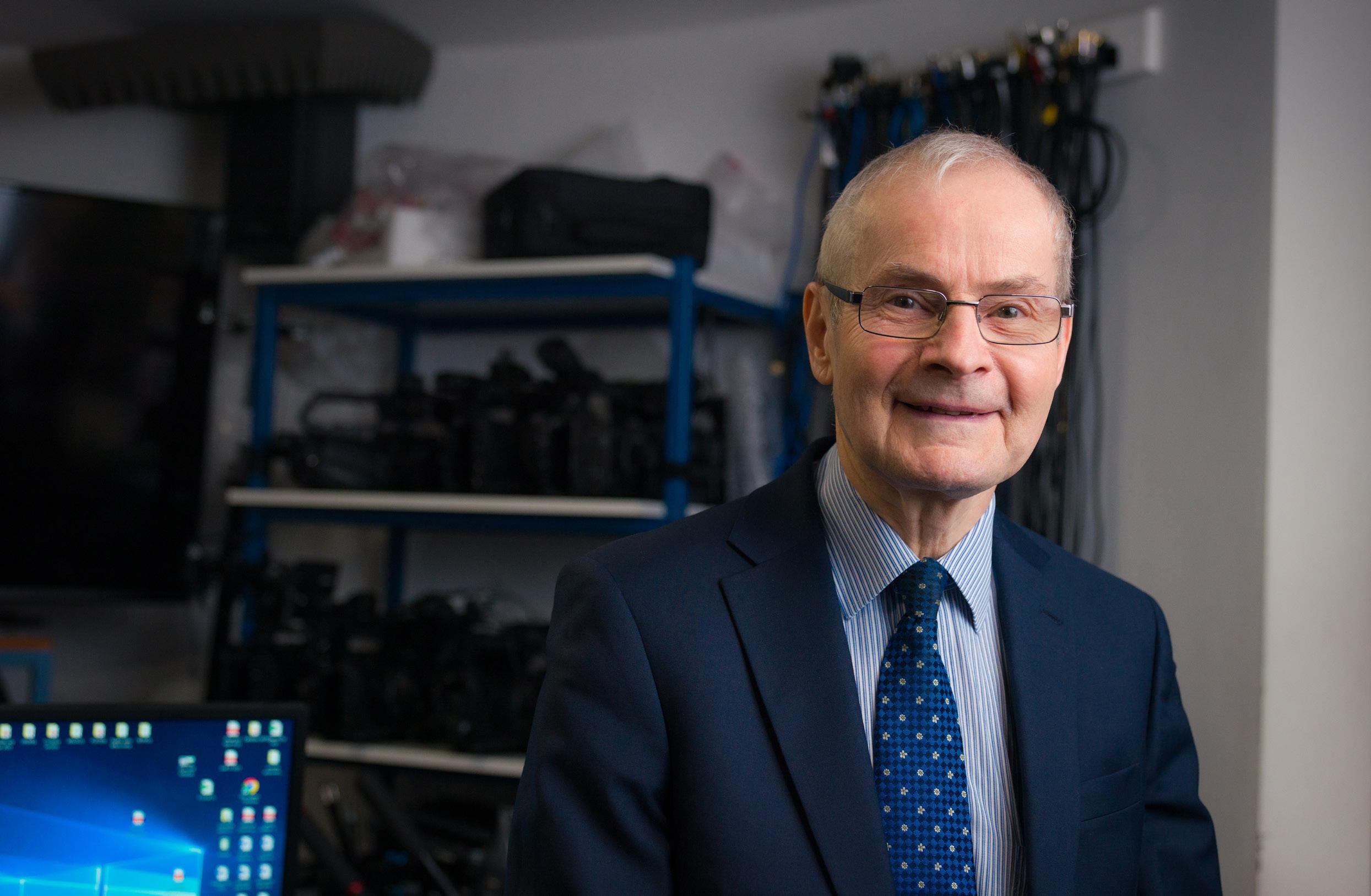
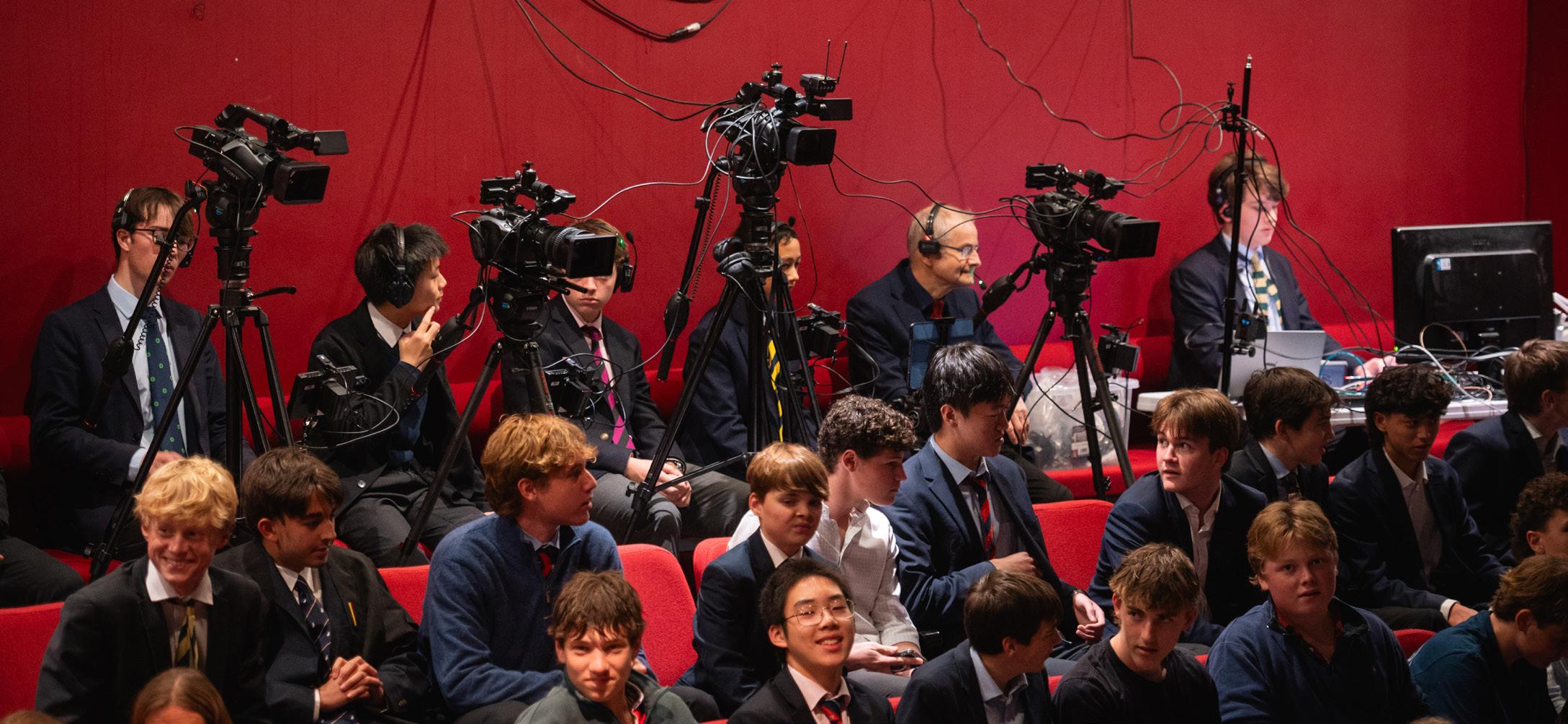
a task he gave to all new members of the Unit to teach them the right way to frame a subject for an interview. I didn’t know then but that visit to the Video Unit would become one of the most transformative things I did during my time at Radley.
In the following years, my visits to the Video Unit became much more frequent. I realised that this cupboard under the stairs was the place I felt truly at home and relaxed; something echoed by all the Video Unit boys I have spoken to since Max’s passing. The atmosphere Max created was one of warmth and comfort – as a former don himself he seemed to always know the right things to say during the various ups and downs whilst I was at the school.
One of the most exceptional things about Max was his creative enthusiasm and willingness to explore the boundaries of what a school could create, and his aim for our productions to be “as good as the BBC” was at the forefront of everything he did. New equipment was always greeted with excitement. While it seemed that us boys were the most thrilled by the arrival of new kit, deep down Max was probably the most thrilled of us all.
At the end of my Remove year I went to Max with an idea for a short film I wanted to make. From helping me develop the story to advising on the practicalities of my slightly optimistic ideas, Max was nothing but supportive. He inspired me to push the boundaries
of the film and helped wherever he could throughout the process. One of the most touching moments during the production, and a memory I will always hold dearly, was when Max came to Cornwall to watch us film one of the scenes. The effort he made to drive down and see us during his summer holiday is a clear example of how kind and generous Max was to the pupils he taught. Since leaving Radley I have decided to pursue filmmaking as a career, and I can wholeheartedly say my decision to do that was primarily down to Max’s influence on me during my five years at Radley.
I recently made a film about Max’s life where I interviewed many Old Radleians who had been part of the Video Unit. Each and every one of them spoke of how much Max shaped their lives during their time at the school and beyond. Reminiscing about McDonalds trips and voyages on Max’s speed boat around Bournemouth, they all had an exciting story to tell.
Since leaving Radley, Max continued to have an impact on me and I could always rely on him to give me advice. I would often speak with him after completing a film or ask his opinions on an edit and he would always be more than happy give me comments or feedback. Max went the extra mile for every person he met, he was an incredibly kind and supportive soul and a true role model for what a school teacher should be. He will be truly missed by us all.
Meet... The New Tutors
Two of Radley’s youngest Socials, K and L, welcomed new Tutors this term in the form of Fergus Taylor and Simon Dalrymple. We chatted to the pair about their new roles, and what it means to collectively be the main port of call for almost 150 students…
What’s your story so far?
Simon: I was a boy in H Social from 1996 to 2001 under Charlie Barker, and studied at Christ Church, Oxford before spending a year in Madrid working in a law firm. I returned to Radley in 2005 to teach French and Spanish, and have been Master in Charge of Cricket since 2014.
Fergus: I read Classics at UCL for my undergraduate degree and then went to Oxford for postgraduate studies. I arrived at Radley in 2020, having previously played three years of professional rugby in northwest Italy. Before becoming Tutor of K Social, I was Head of Classics and Resident Sub-Tutor of L Social.
What were your thoughts as you first arrived at Radley?
S: England were in the process of winning the Ashes for the first time in 18 years after an amazing summer of test cricket… despite that distraction, I was immediately struck by the energy and industry of colleagues. Lots of them had taught me, and it was impressive to see the work and thought that went into the end-product.
F: My first Social Prayers took place in a tent outside B Social! However, even with lockdowns and bubbles, the warmth of the community and the beauty of the campus were particularly striking. As an old Shirburnian (alumnus of Sherborne School) and therefore rival, I expected Radleians to be ‘awful’… but I found them excellent company and a joy to teach.

What has been your favourite Social Prayers?
S: 20 years of Social Prayers means it is hard to pinpoint a favourite but recent highlights have included a wheelie bin pinhole camera and the haka!
F: An L Social boy, Muru (6.2), spoke of his father’s journey from sub-Saharan
Africa to Cambridge – an extraordinary and powerful story. I really enjoy Social Prayers delivered by the boys themselves.
And favourite Cocoa?
S: I once made bone marrow on toast for Cocoa, but it is more often the company that makes Cocoa special rather than just the food.
F: My first as Tutor of K Social – a closed weekend, the whole Social sat outside together enjoying a barbecue.
Unlimited budget – what would you have as a Cocoa, and who would you have for Social Prayers?
S: I’ll channel my Spanish connections and ask for some proper jamón serrano , cheese, garlic prawns and pan con tomate for Cocoa. I think David Attenborough would give a great Social Prayers. I’d provide a list of animals that I would rather he didn’t bring with him though...
F: French Dip sandwiches, lasagne, salmon blinis with caviar and crème fraîche , hog roast; I could go on! And Julius Caesar!
What job are you doing in a parallel life?
S: It would probably be some sort of food/ sport/travel journalism. An Anthony Bourdain figure with free tickets to cricket and rugby matches thrown in would be ideal.
F: As a child, I wanted to be a farmer – I loved riding in the combine harvesters!
Now, if not teaching at Radley, I would want to be a ski instructor.
What is your favourite joke?
S: A former pupil claims that he invented this joke
in Spanish: ¿Qué hace un pez perezoso? Nada! [What does a lazy fish do? Nothing/it swims!] I like it when moments in class genuinely make you laugh.
F: Odysseus’ trick on Polyphemus in The Odyssey Book 9 – one of the first recorded jokes in human history.
Favourite piece of music?
S: Wildflowers by Tom Petty when I want to be moved. Superstition by Stevie Wonder when I want to move.
F: The second movement of Rachmaninoff’s Piano Concerto No. 2 .
And favourite book?
S: A Tale of Two Cities.
F: Top three: The Lord of the Rings , The Aeneid (not strictly a book…) and The Alchemist .
Advice to incoming Tutors?
F: Having only been a Tutor for a short time I hesitate to give advice, but if anything, use the wisdom of other Tutors and the Common Room – invaluable.
S: Communication is key – with boys, parents and colleagues. And be adaptable.
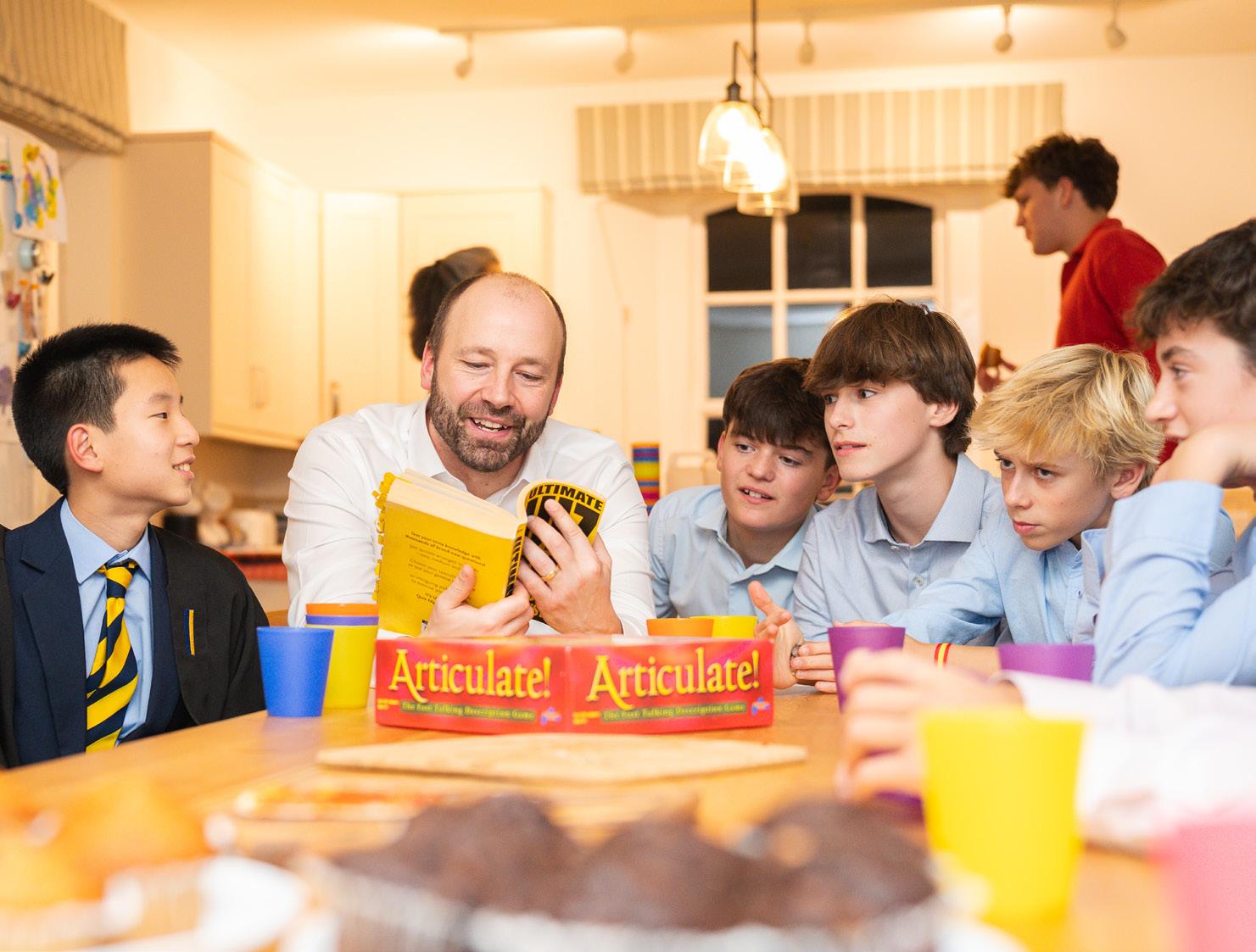
SHOWTIME STARS
Radley’s first Gaudy was held on 21st June 1848 – the 22 attending boys enjoyed a banquet, speeches in Chapel, and a selection of cake and strawberries, in what was reportedly “one of their happiest days”.
This year the tradition reached new heights, as families were invited to step beyond the usual festivities and experience the College’s vibrant co-curricular life firsthand. For the first time, visitors were treated to a showcase of some of Radley’s 67 co-curricular options, from a stunning exhibition of artwork created by boys and staff to an impressive display of Design Engineering projects.
Guests also had the chance to test their golf swing in the state-of-the-art simulator, and even take the helm of robots under the guidance of Radley’s champion VEX Robotics team. It was a day that paid tribute to not just the legacy of a 177-year-old celebration, but the remarkable creativity and talents thriving within the College.
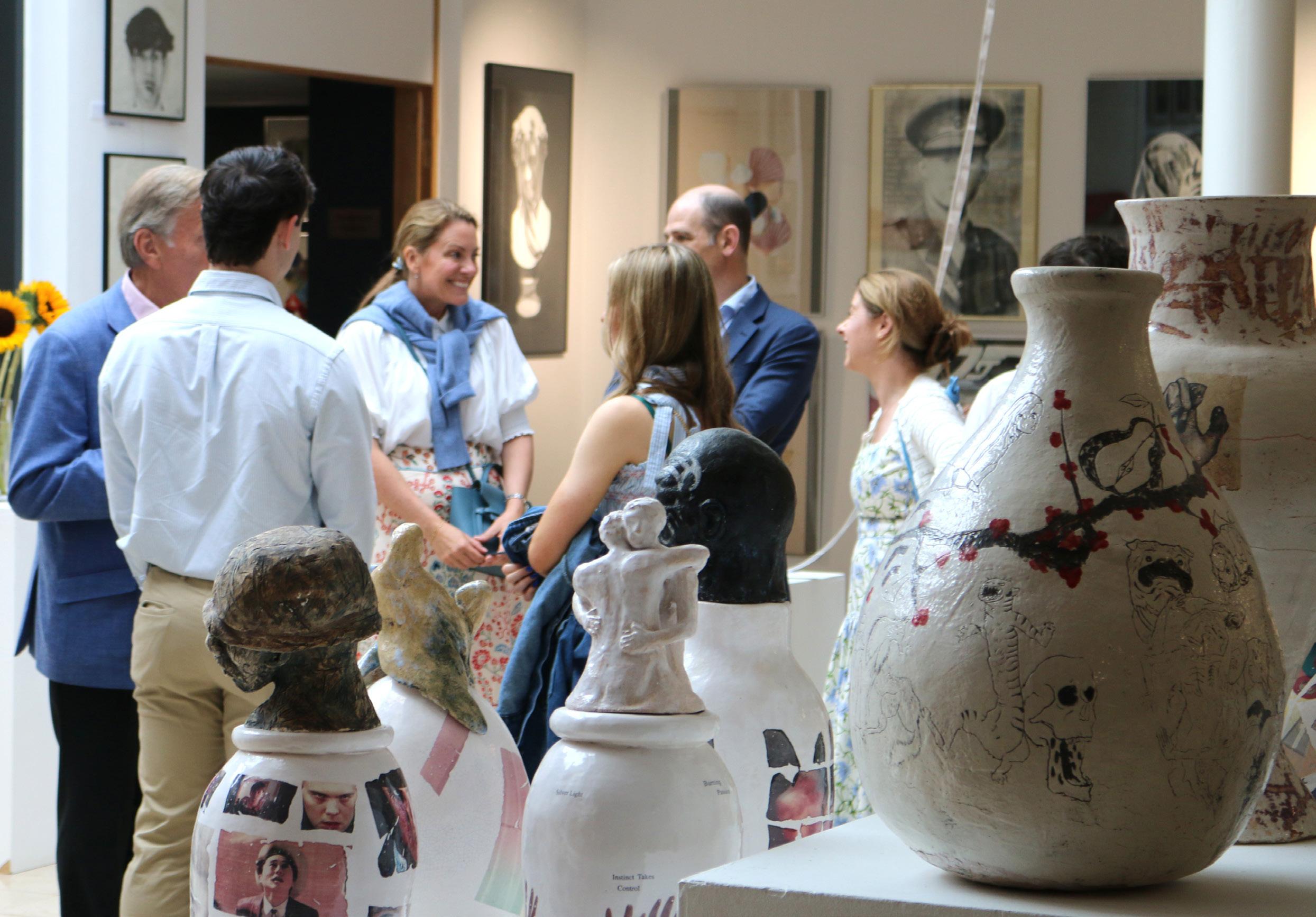
RADLEY ZOO
Radley’s infamous collection of animals was a highlight of the day, as snakes, frogs, reptiles, and lizards made their playful debut.
For those less keen on being draped with a boa constrictor, Gismo the hedgehog provided a more affable alternative.
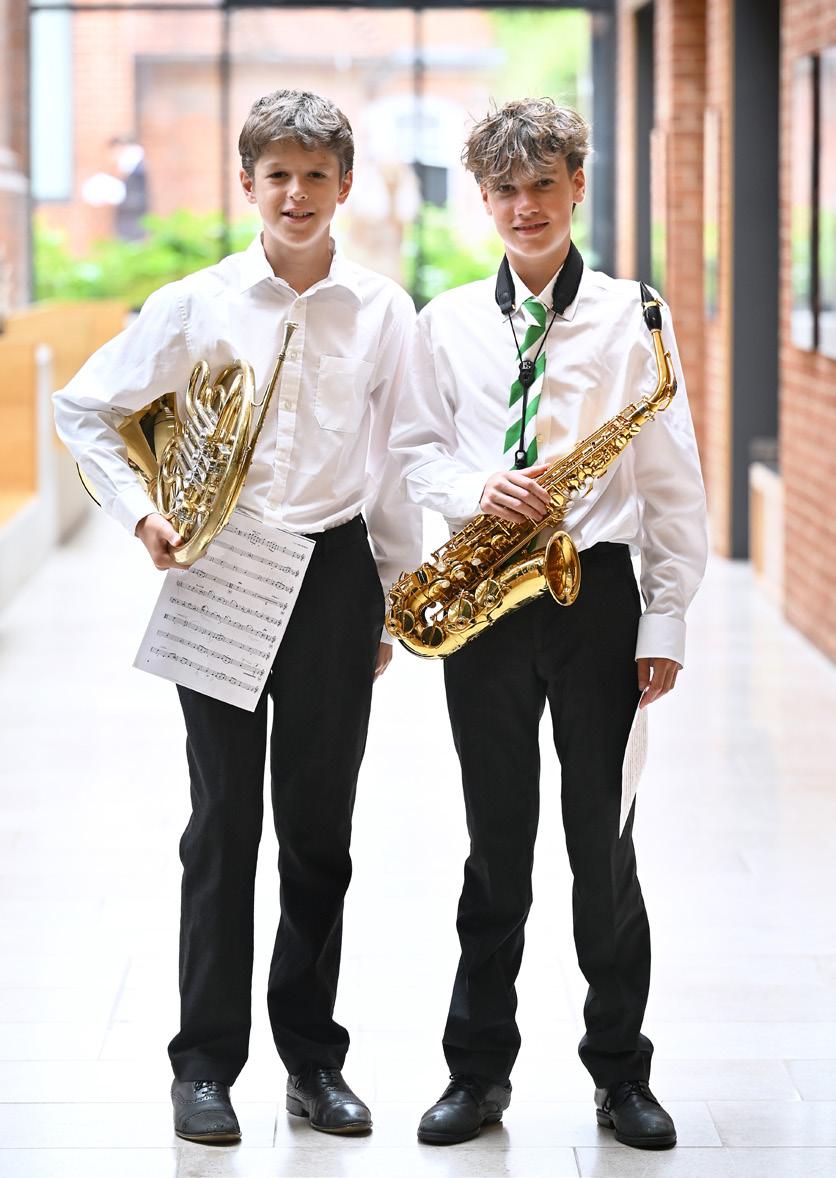
COUNTRYSIDE CENTRE
A shuttle was on hand to whisk guests off to the Countryside Centre where they met Radley’s furry residents.
Highlights included cuddles with three-week-old Beagle puppies and the College’s first ever pig race, where Pumbaa leapt over hay bales to take the win!
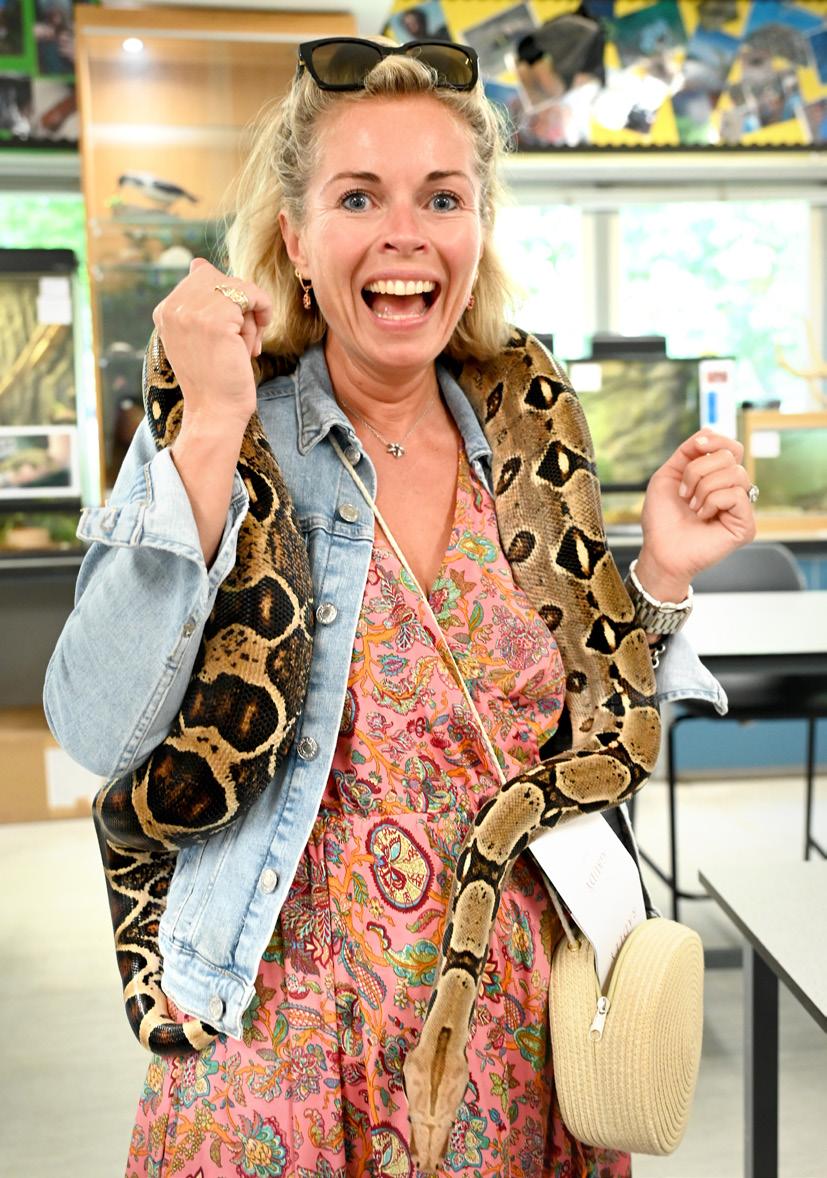
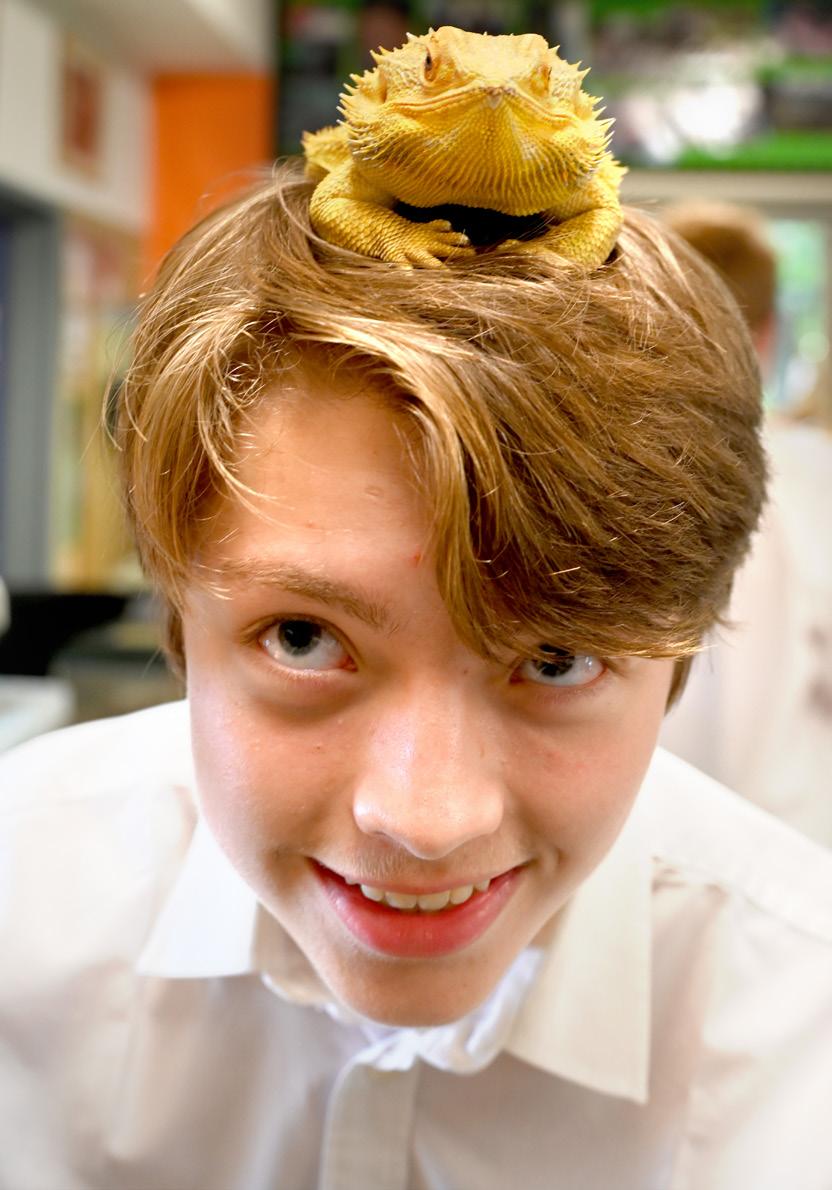
MUSIC
Coffee Shop was alive with music as Radley’s talented soloists from across the year groups performed a variety of musical numbers.
Parents were also treated to singing highlights from the Milligan Cup, adding a harmonious soundtrack to the day’s festivities.
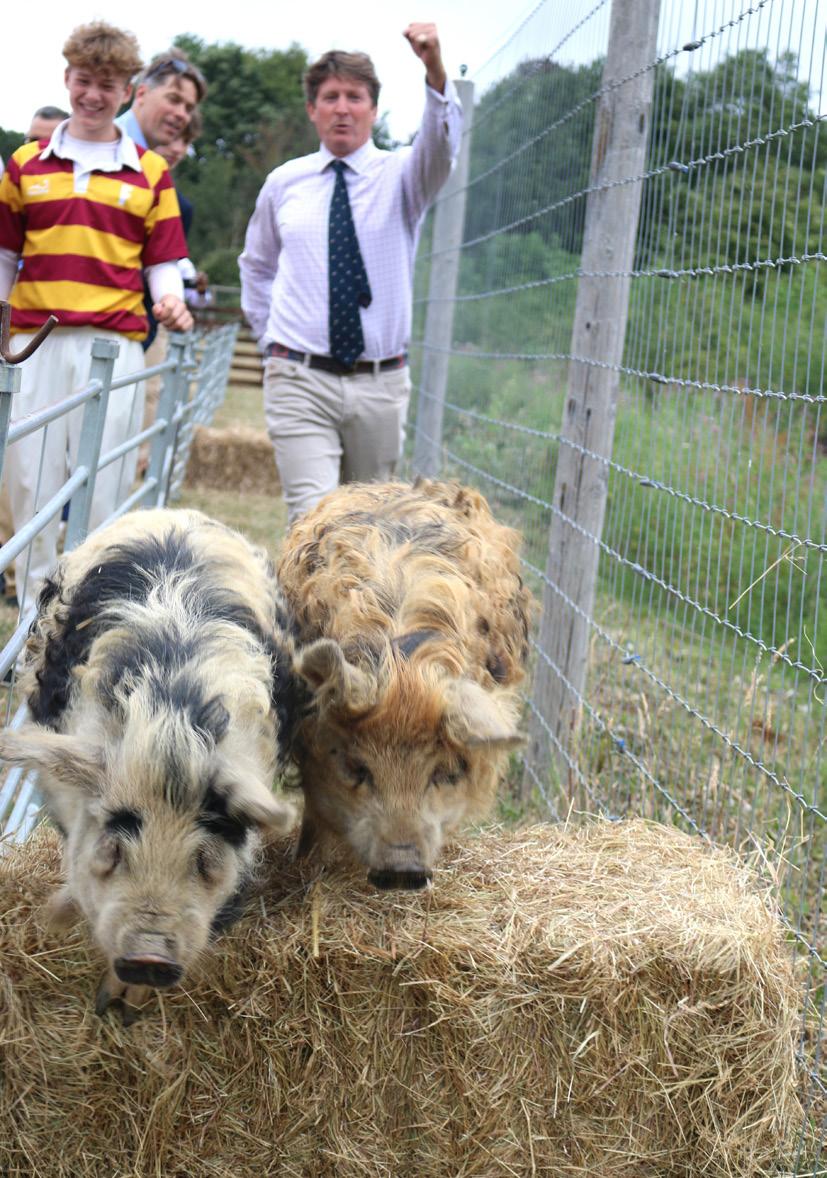
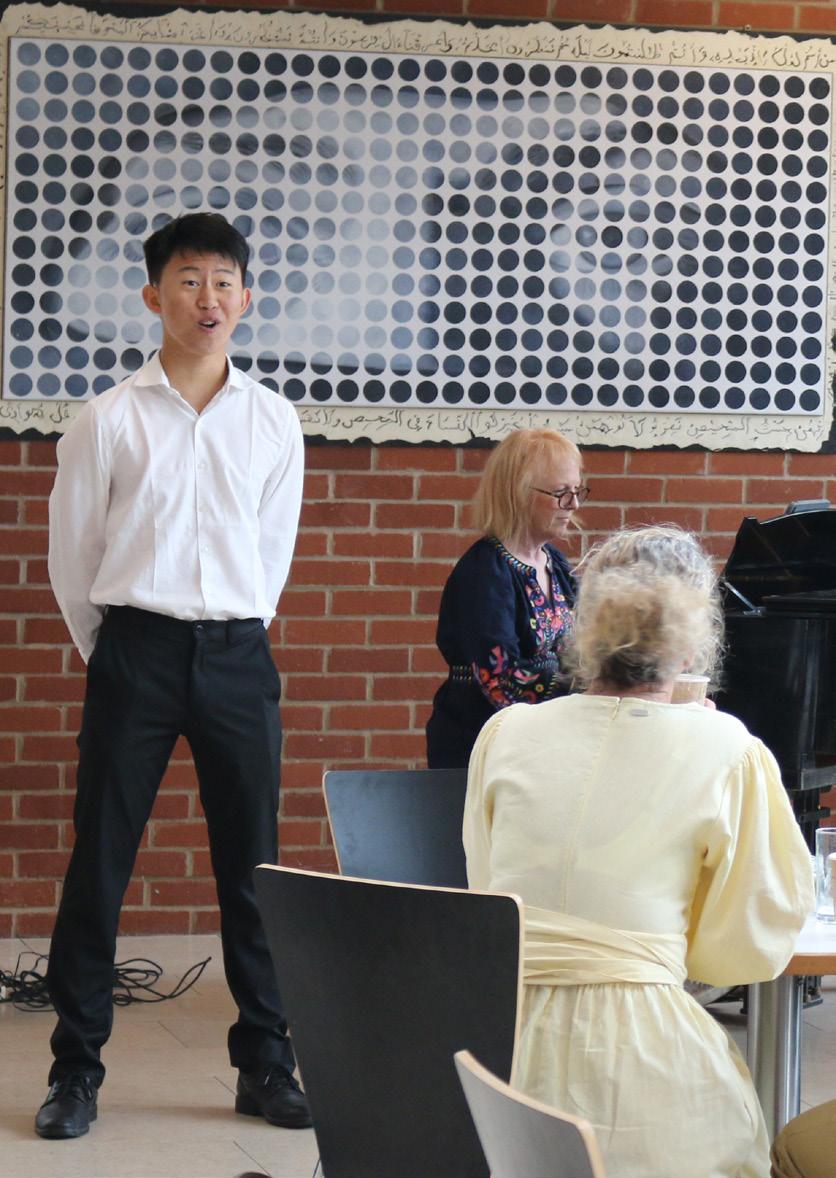
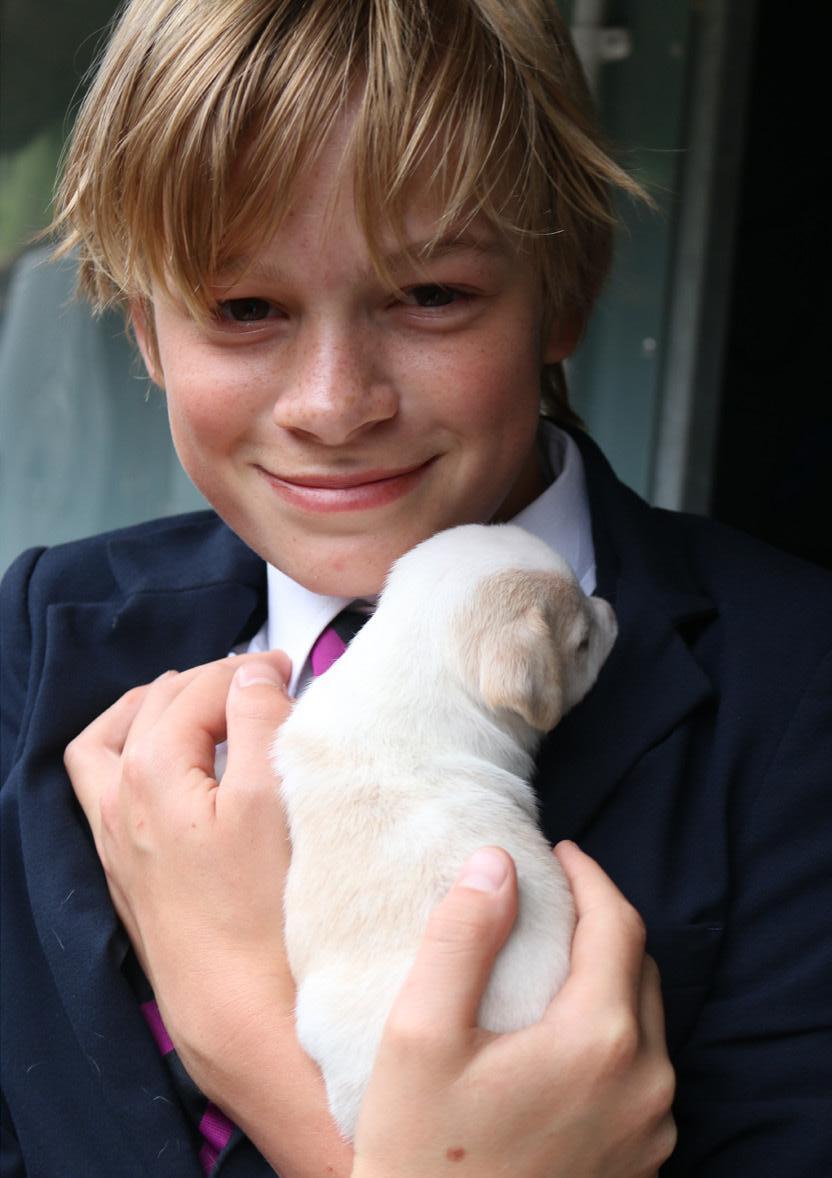
Nature and Nurture
radley’s countryside centre
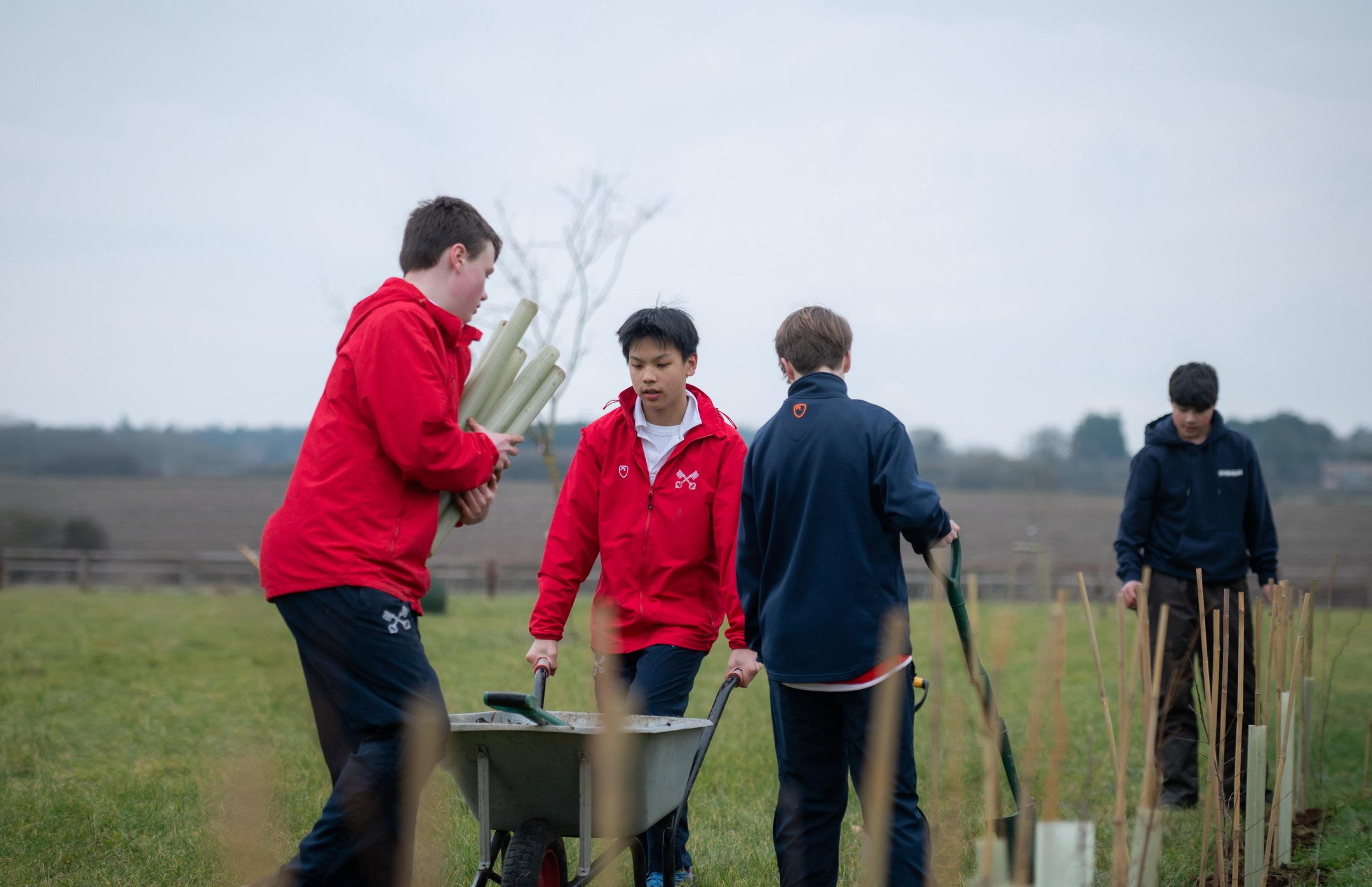
Tucked away on the other side of the golf course from the main school campus, the Countryside Centre is something of a unique feature for Radley College. Surrounded by the bucolic rural idyll of the school’s 550 acre farm, the Countryside Centre has grown significantly in recent years. It has become a place of excellence for the delivery of countryside, conservation and environmental education, training and personal development opportunities for Radley boys and our school and charity partners.
In the words of Countryside Centre Director, Charlie Herbert, his focus over the past three years has been on three core lines of development: improving the internal offer provided by the Centre for the benefit of Radley boys; broadening the external offer provided to local secondary and primary schools; and finally in establishing the Centre itself as a platform for all that they do now and in the future. The latter focus has seen hundreds of metres of native hedging and a traditional English orchard planted, fifteen acres of arable fields switched to what will eventually become permanent woodland pasture, and a wealth of other biodiversity enhancements. While the Centre retains an active pack of hounds – the Radley College Beagles – it has also significantly diversified its livestock holdings. It now hosts a small flock of Herdwick
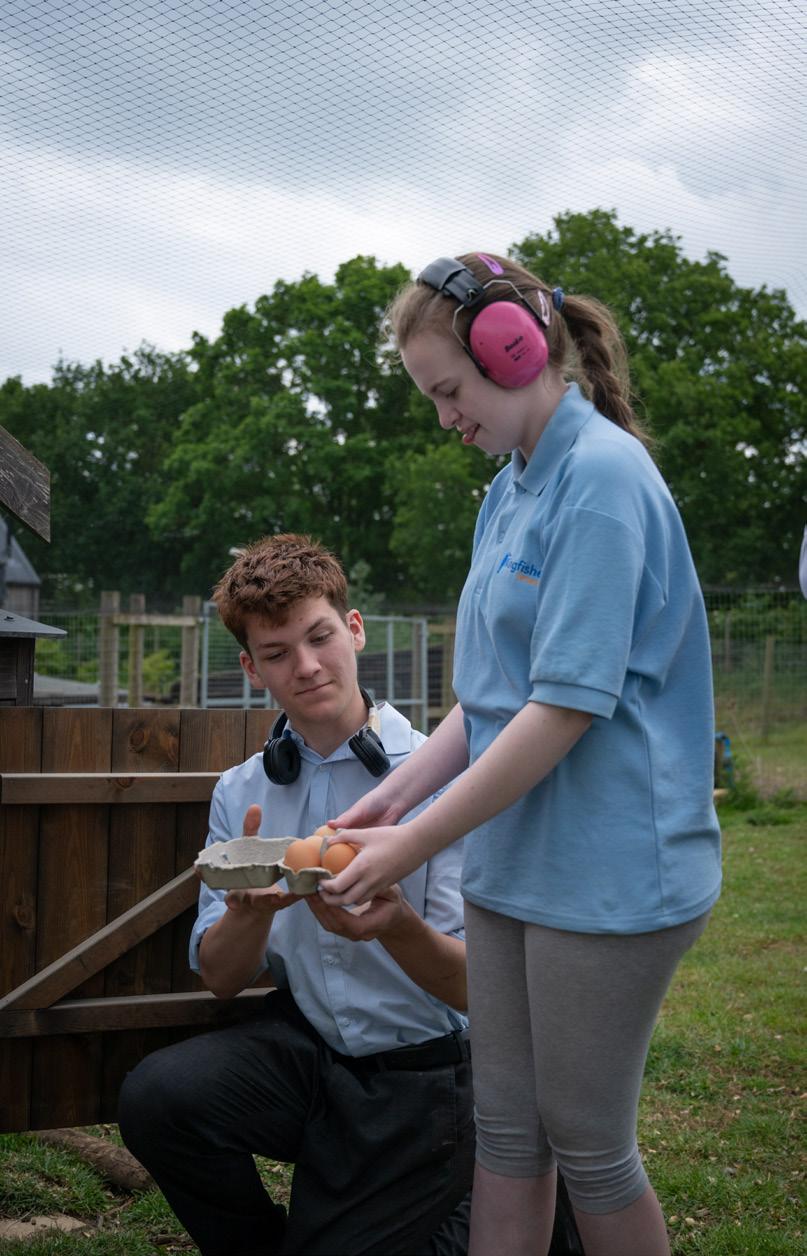
sheep, some rare breed native goats, Kune Kune pigs, a couple of Shetland ponies, various poultry and a Border Collie sheep dog.
The jewel in the crown of the Centre’s work remains the Beagles, with boys walking hounds out daily, beagling, and showing puppies and hounds nationally in the summer months. However, the greatest change of recent years has been the establishment of the Shell Countryside Programme, with all first year boys now spending six Wednesday afternoons at the Centre throughout the year, being introduced in small groups to agriculture, horticulture, livestock husbandry, shooting, beagling and other rural pursuits.
Externally the Centre contributes extensively to Radley’s nationally recognised partnership programmes, utilising spare capacity during the mornings, in particular, to work with state secondary and primary schools in Abingdon, and increasingly in the more socio-economically disadvantaged areas in and around Blackbird Leys in Oxford. The core offer – the Countryside Alternative
Provision (Capstone) Programme – works in partnership with local schools, parents and often social services to support teenage boys in Years 8-11 at risk of permanent exclusion from their schools. Other programmes work with children with highly complex educational needs and with a local charity supporting the physical and mental rehabilitation of adult brain injury survivors.
‘It is these latter programmes in particular’ says Charlie, ‘that our boys are most involved with, and there is no doubt in my mind that programmes involving Radley boys offer the most mutual benefit and impact. There is nothing more rewarding than watching our 6.1 boys building trusting, empathetic and engaging relationships with our partnership children, and I am struck often by the benefit that it brings to both parties’.
‘The Centre is something unique to Radley’, continues Charlie. ‘It is far more than a traditional beagling kennels or an innovative livestock farm. It is a place of calm for Radley boys, surrounded by nature, but which offers them challenge and opportunity in equal measure. It is a place for them to understand the practical importance of biodiversity, to understand where their food comes from and the challenges of farming in the 21st Century. Most importantly, it is a place where they can work alongside those from different and diverse backgrounds. We’re very proud of it, and I know the Centre’s staff feel hugely privileged to support and encourage the boys during their time at the College’.
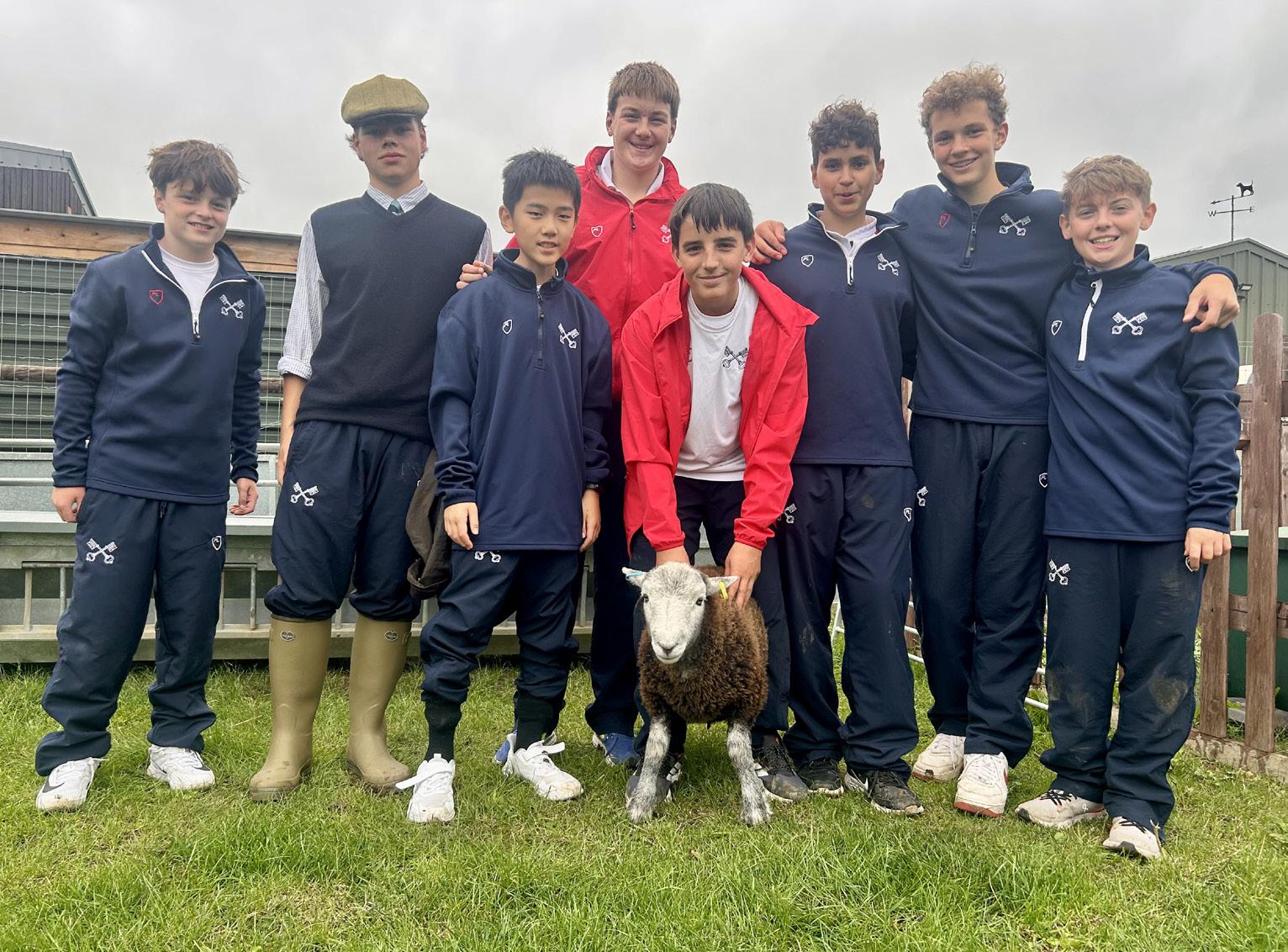
The Fated Finalists
With the end of their first year looming, the annual Shell Play is a rite of passage. This year’s offering, written and directed by Director of Drama, Miss Victoria Buse, cleverly emphasised how, what appears at first to be a game show – in the mould of Netflix’s Squid Game – quickly becomes something more sinister. What would you be willing to do to get your hands on £1m?
The play follows three individuals, all struggling with money, who enter a mysterious game show. Jack (Luke, D) wants to save his brother who is suffering from cancer; Gerald (Hector, D) is a widowed, impecunious pensioner facing possible eviction from his care home;
and Stewart (Henry, L) is a stressed father drowning in debt. All three actors delivered deeply considered performances, from Luke’s quiet desperation to Hector’s heartfelt charm and Henry’s gripping descent into rage and fear.
The three are lured into a three-stage challenge, led by the enigmatic ‘Host’ (Adam, B), under the slogan: “Keep it secret. Keep it safe.” Shadowy reporters (Monty, A, Charlie, J and Eli, L) follow their every move. Each task becomes darker: the first involves pulling a prank, while the second involves stealing something and framing an innocent party. The tone subtly shifts from light satire to psychological thriller. A comic moment – Gerald
swapping the care home DVD for something much less appropriate – was brilliantly played, with Monty (C) as the entertaining Trevor stealing the scene.
The final challenge pushes morality to its limit: each contestant is handed a gun and told only one can win.
This was an ambitious production that successfully blended satire with suspense – aided in no small part by the costume design, a seamless transition between scenes and a mixture of dance tracks that matched the fast pace of the audience’s heartbeat. The Fated Finalists was proof that Radley’s dramatic tradition remains as bold and original as ever.
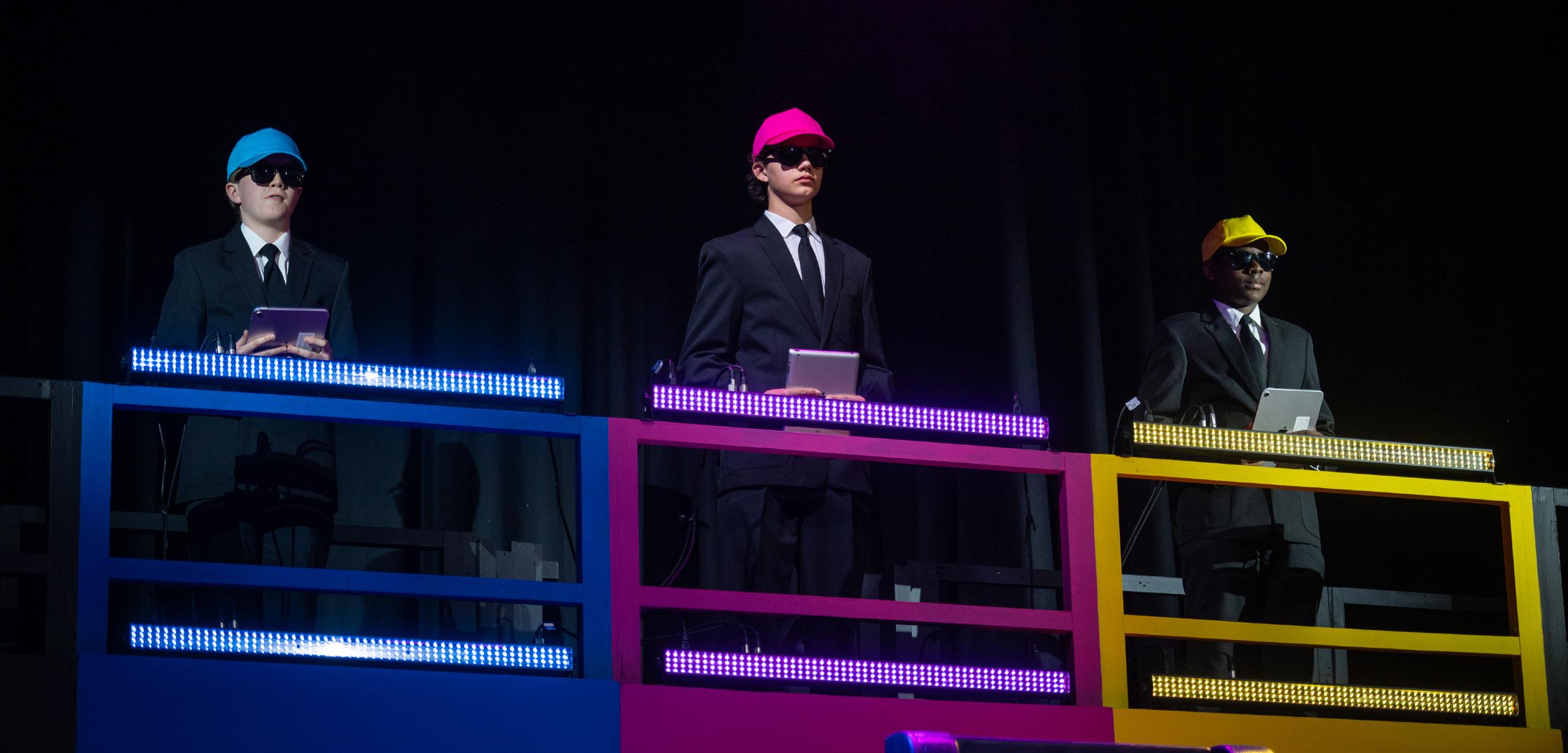
Rupert (R, B)
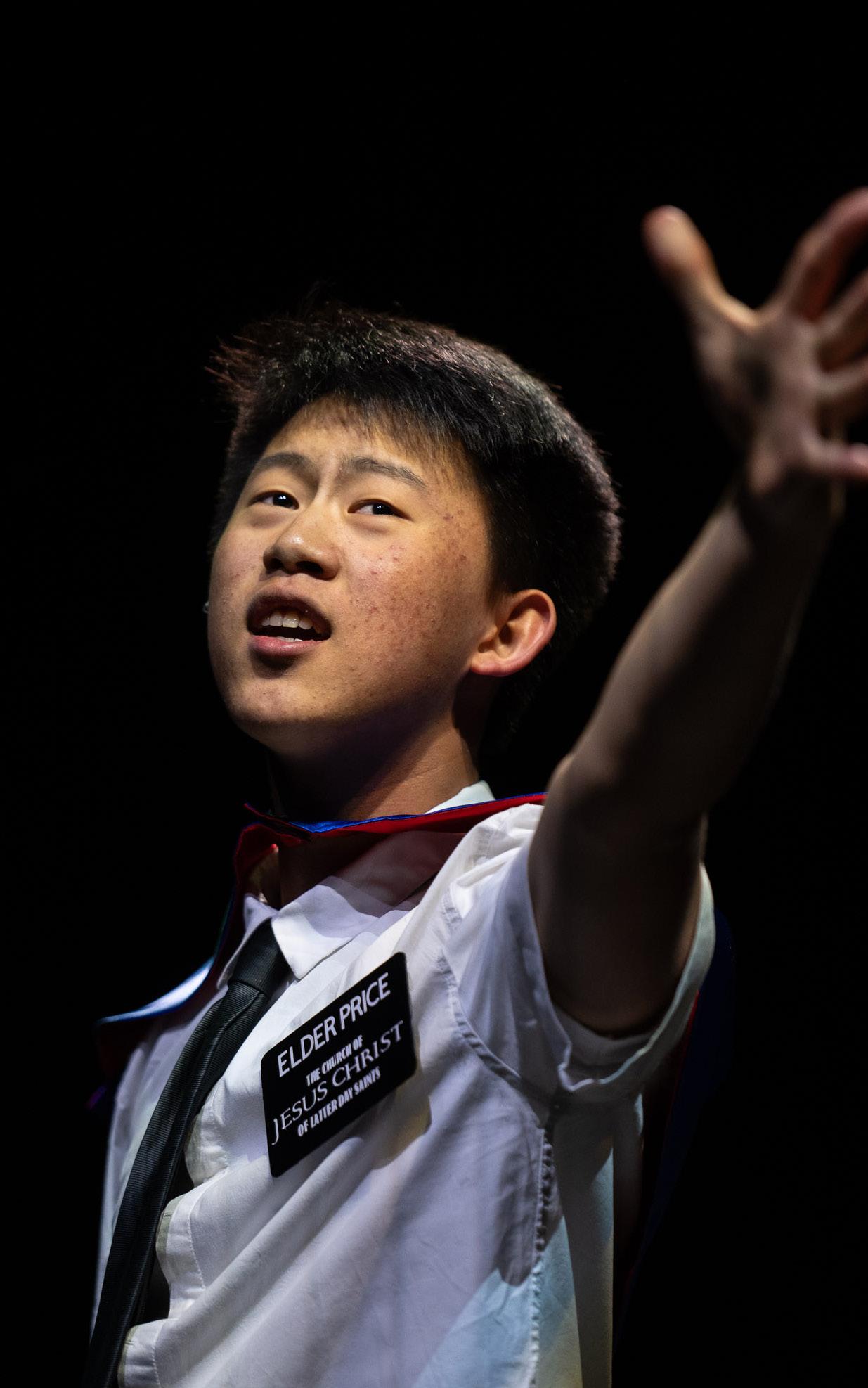
The Milligan Cup
This year was my final run of the Milligan. In Removes, I competed in the final as Aladdin. Aladdin was amusing to impersonate, but he pales in comparison to Kevin Price. The beauty of drama is that there is greater reward for greater risk: the same character who would best be avoided on the street is applauded on stage. The Milligan was therefore an excuse for me to embody a character that I would fear to encounter in real life.
Price’s confused beliefs and spontaneous thoughts made the hours put into rehearsing particularly exciting – we even spent a week agonising over whether a blue-and-red cape should be included. Happily, it was. Not quite Superman, but close enough.
Being called ‘extremely silly’ in front of an audience ranging from toddlers to grannies is usually an insult. That is, unless it is coming from David Ashley – the adjudicator of this year’s Milligan Cup. It was certainly entertaining spending a month trying to make myself ‘more silly’: I was to become Kevin Price, a diehard Mormon on a righteous mission to make the world great again.
The Milligan is equivalent to doomscrolling the highlights of your favourite musicals in one evening. Pieces that bring even the most stoic to tears are followed by ones that reduce them into fits of laughter. It is without doubt the wildest rollercoaster of an evening one can experience at Radley. And it is more than just singing: all of it is in full costume and lighting with a dons’ band.
By the time of the final performance, Kevin Price’s silliness came naturally. Concerning? Probably. The lights black out, a stream of light blinds my vision, the band begins, and that little bit of me which is Kevin Price leaps out. A few jumps, runs, and high notes later, Kevin Price ceases to exist and I get to sit down and enjoy everyone else’s performances. That, for me, is the highlight: to stand back and appreciate the work of everyone else. Rarely do you find Sweeney Todd, Dr Jekyll, Michael Mell, and Eponine all in one room.
Let us only hope that Kevin Price does not convert them all.
D)
The Hearing of J.R. Oppenheimer
This year’s 6.1 Play, The Hearing of J.R. Oppenheimer was a thoughtful and suspenseful drama full of brilliant moments. Adapted from The Matter of J. Robert Oppenheimer , the play successfully utilises a court scene scenario to retell the history, science and ethical issues behind the Manhattan Project.
The cast did a brilliant job of portraying genuine moments of tension throughout the play. This was particularly impressive as several members of the cast stayed on stage throughout the two acts. A number of the standout moments involved interactions between Oppenheimer (played by Tom, L) and Roger Robb (played by George, B). Their heated exchanges were elevated by live music (played by Vitas, L, Adrian, D, and Leonardo, H) which was a truly brilliant touch.
The Director (Miss Felix) and Assistant Directors (Mr Nash and Mr Choroba) also successfully utilised digital projections. Such as during Tom (A)’s amazing speech as Joseph McCarthy, and Mofe (K)’s superb opening speech as Professor Kennedy in the second act. Perhaps its most successful usage was during a scene retelling the testing of the Atomic Bomb – it worked in tandem with the live music to create a truly climatic atmosphere.
Another brilliant touch was the use of monologues. Backed with live music, they were dispersed throughout the play and served as real highlight of the overall production. It was a great joy to watch Adam (H) (playing Duncan Herbert) perform a monologue, his commitment to understanding the nuances of the script proved to be highly effective. So too was Benedict (H) (playing Edward Teller) who had amazing and charismatic stage presence.
Another standout performer was Barney (F), who played Gordon Gray of the Personnel Security Board. It was a true joy to watch Barney, as he transformed a difficult role into a character many in the audience regarded fondly – all while never leaving his seat!
Special recognition must go to Miss Felix, Mr Nash and Mr Choroba for their fantastic direction of the 6.1s. Together, they produced a play full of rich meaning. It challenged the audience to think about the Science vs Ethics debate. A discussion relevant to every scientific discovery. I personally walked away questioning whether the increasing militarisation of science was of any real benefit to the world.
Jovan (6.1, J)
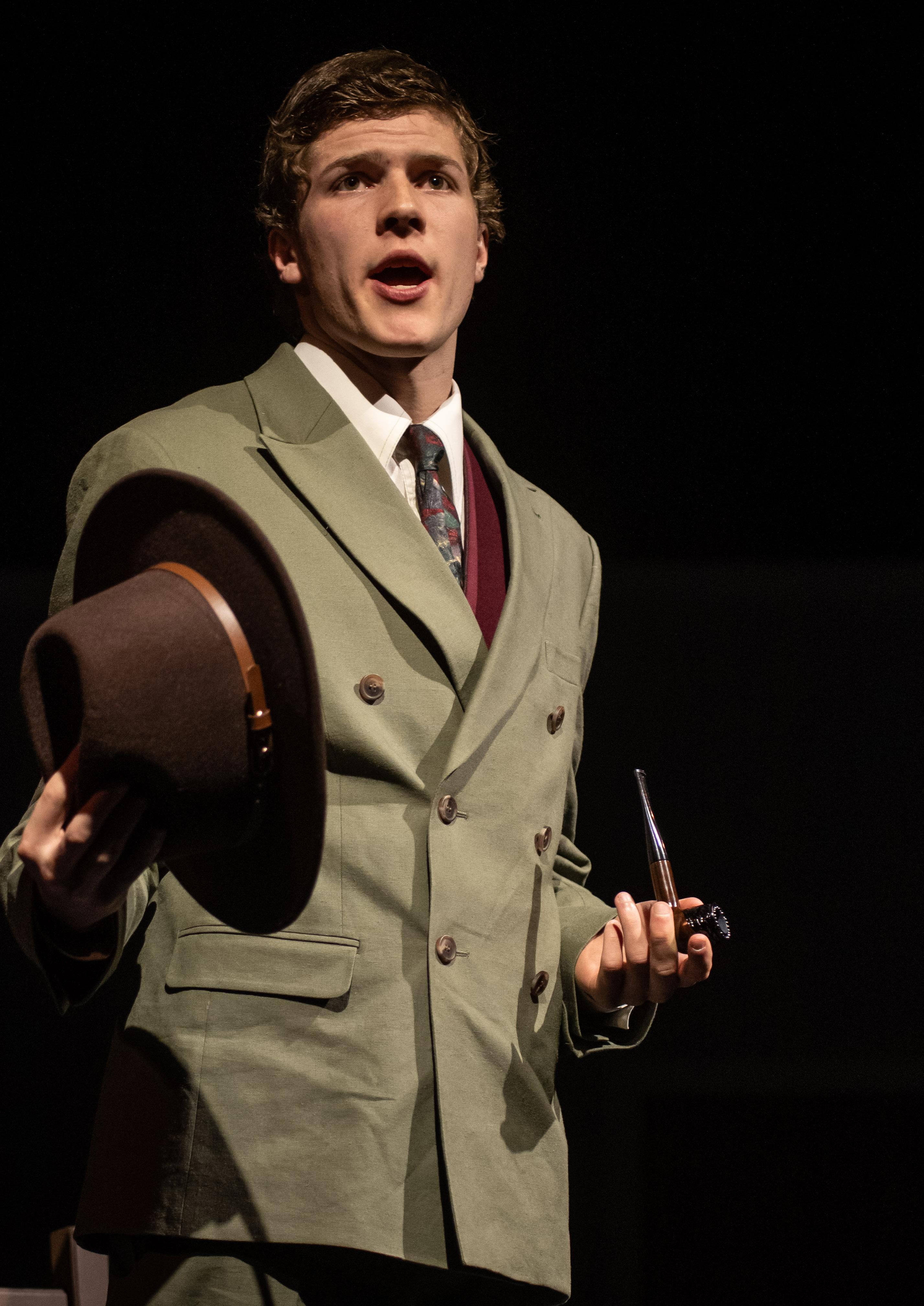
IN OTHER NEWS...
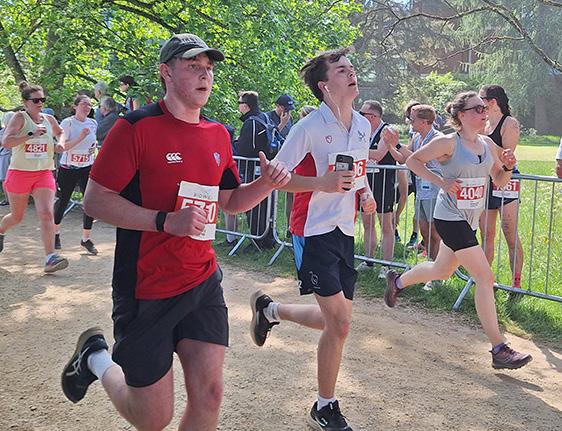
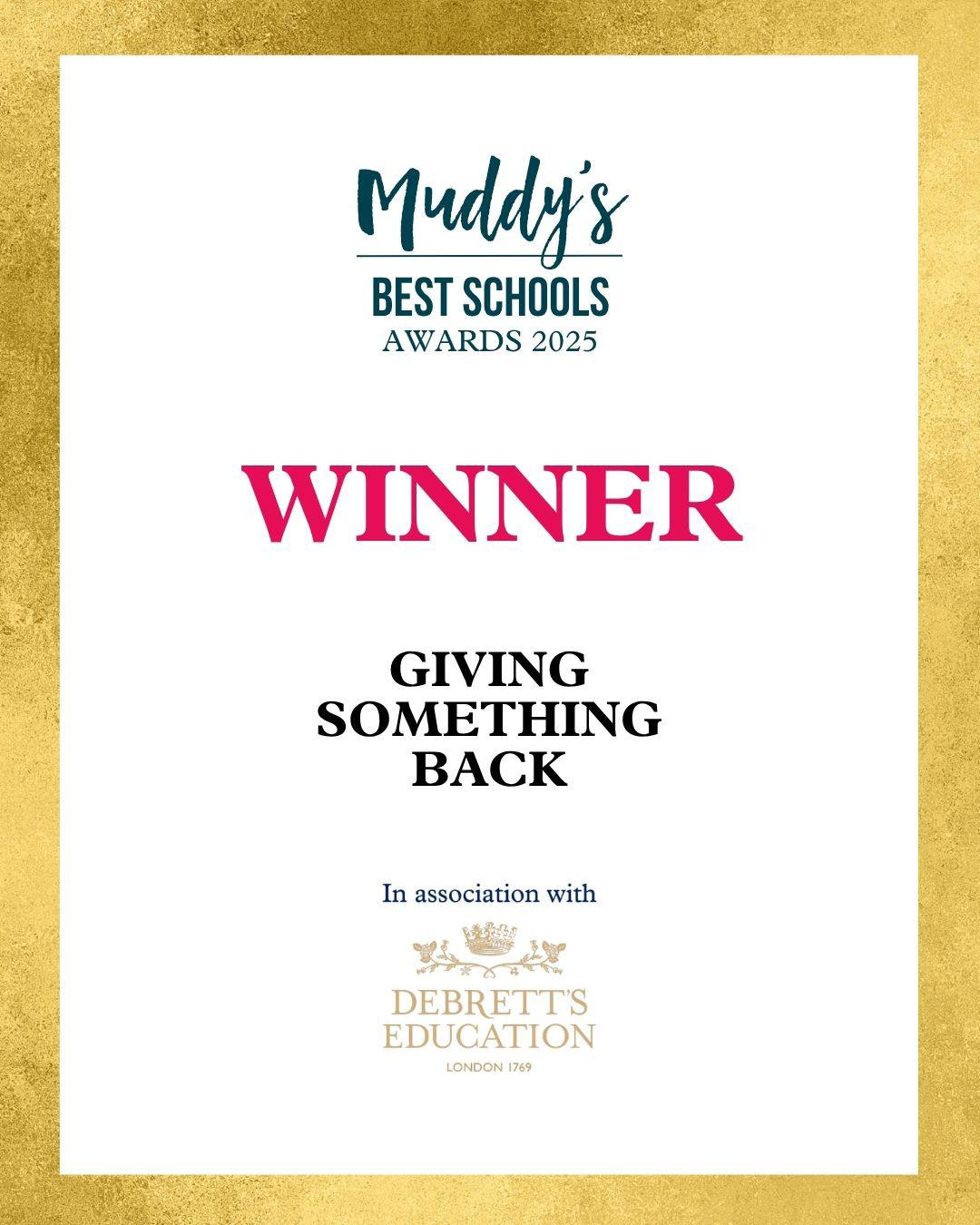
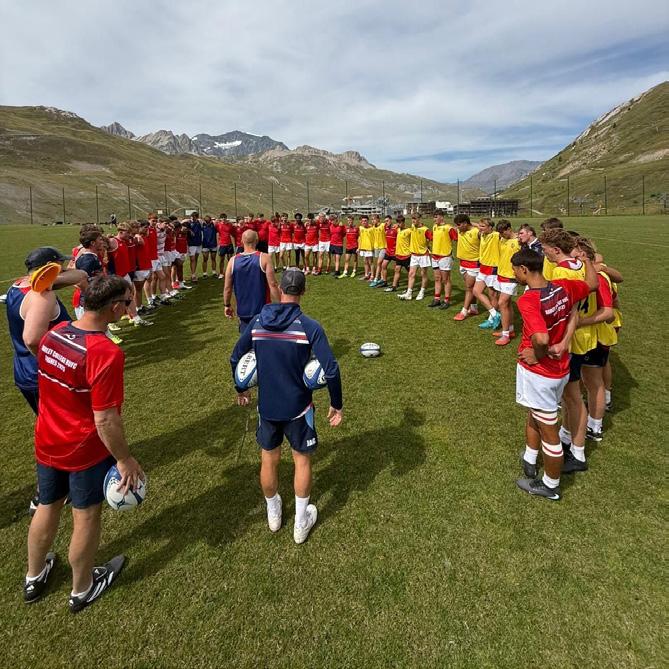
52 boys took part in Oxford’s Town and Gown 10k running event, raising £2,500 for Muscular Dystrophy UK.
Our Partnerships programme won Muddy Stiletto’s Best Schools Award 2025 for ‘Giving Something Back’. We were also finalists in the ‘Dynamic Performing Arts’ category and highly commended in the ‘Excellence in STEM’ category.
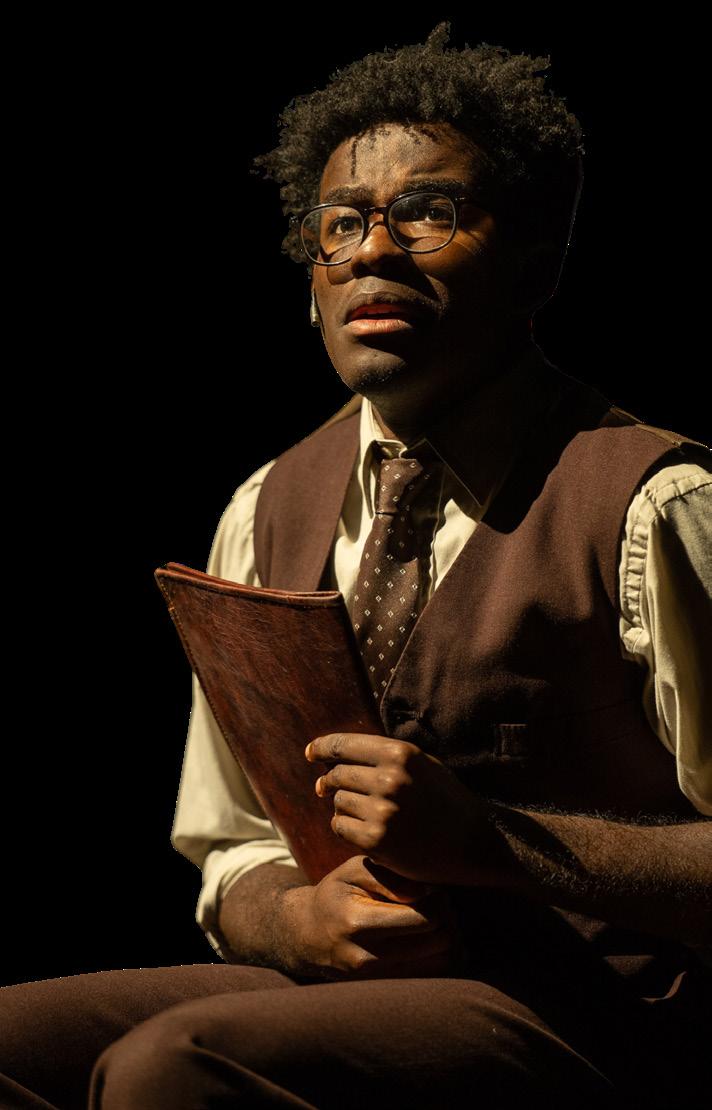
Jovan (6.2, J), now Senior Co-Curricular Prefect, took the top prize in The Milligan Cup, with his performance of It’s Hard To Speak My Heart from 1998’s Parade.
Rock-climbing and high altitude rugby in France, seabird monitoring and CCF hikes in Wales, and work experience at one of China’s biggest companies numbered among Radley trips away this summer.
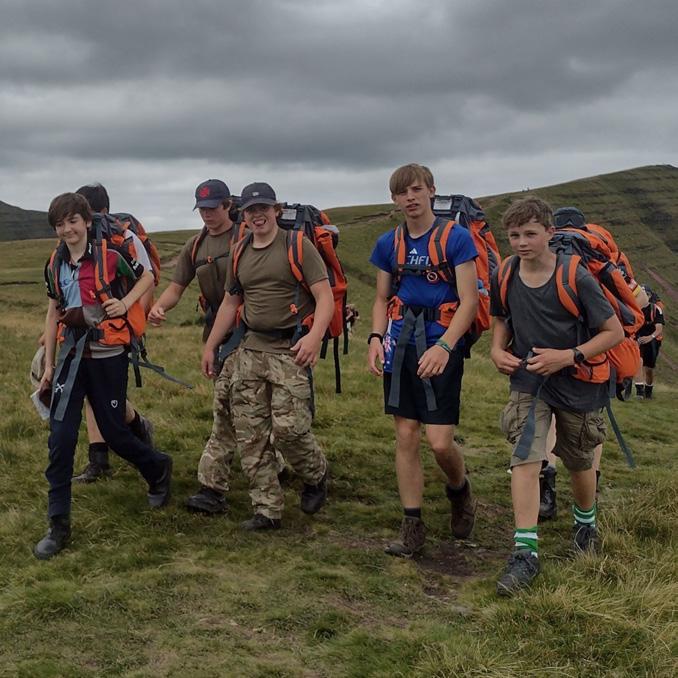
Thousands of Oxfordshire children participated in Music Flood Week, the centrepiece of Radley’s music partnership work.
More than 80 Radleians visited 16 local primary schools for 65 separate events, culminating in a mass celebration in Abingdon Market Place with 700 primary school children.
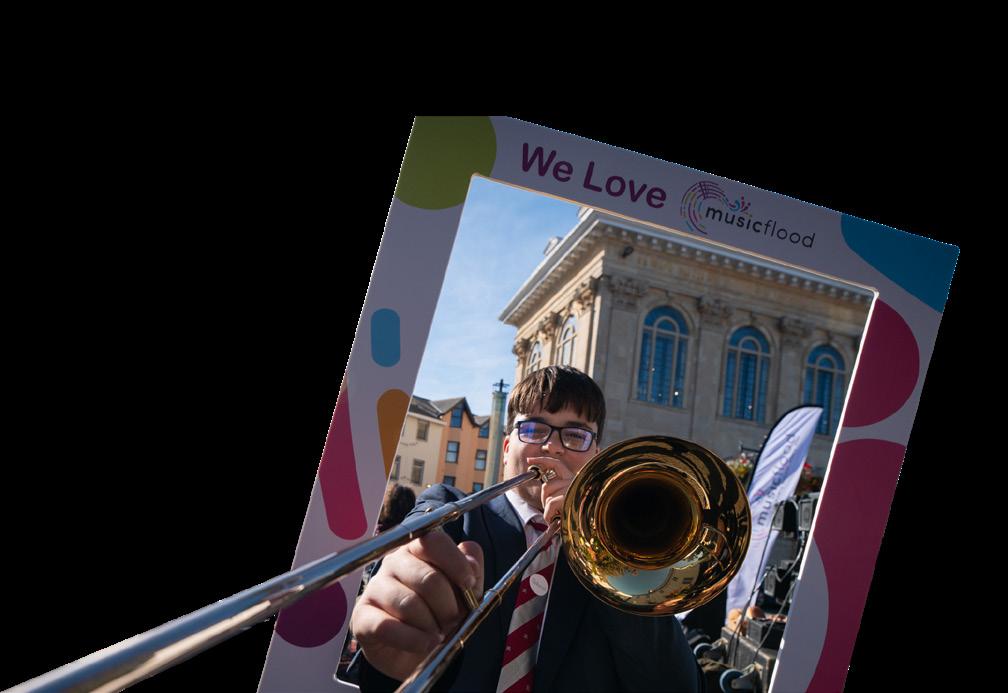
Poet Laureate Simon Armitage CBE visited Radley in April. Other recent visiting speakers included Ambassador Leigh Turner, Interim Chief Operating Officer of NHS England, Dr Emily Lawson DBE and Art Historian, Professor Leo Costello.
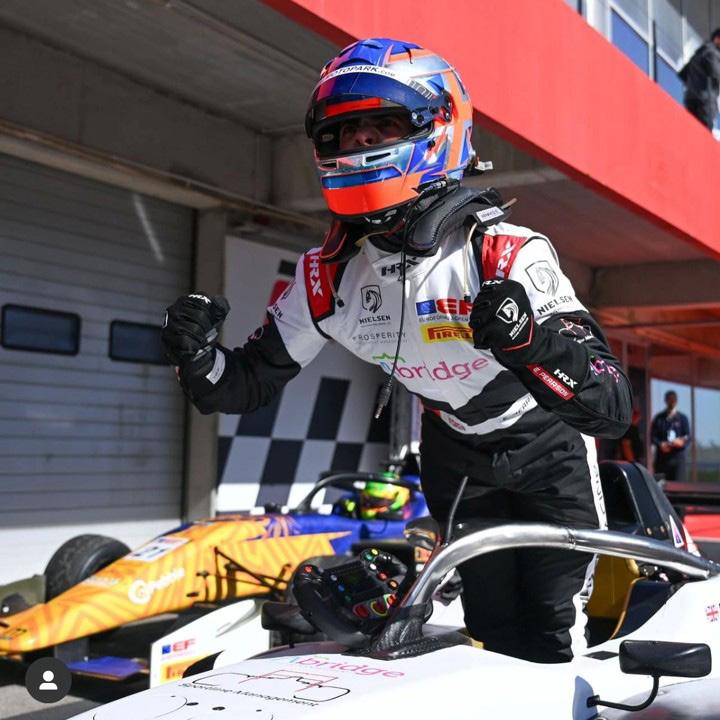
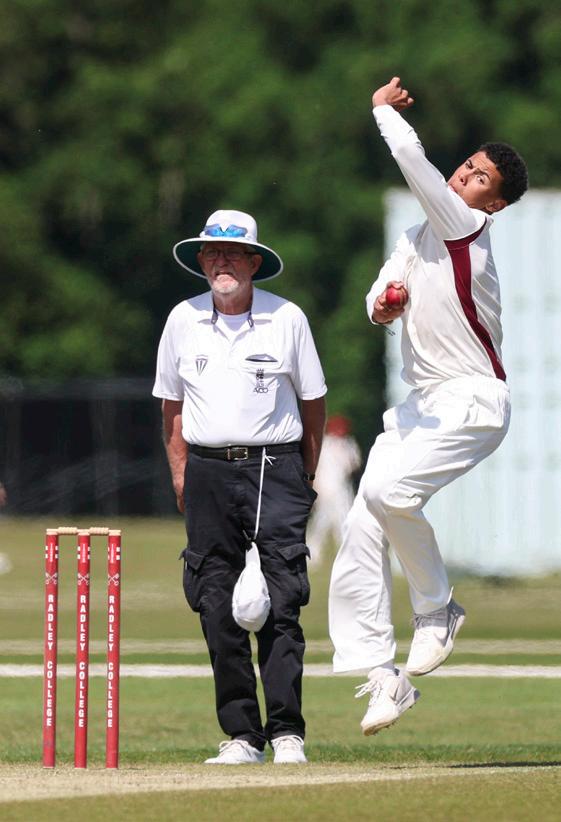
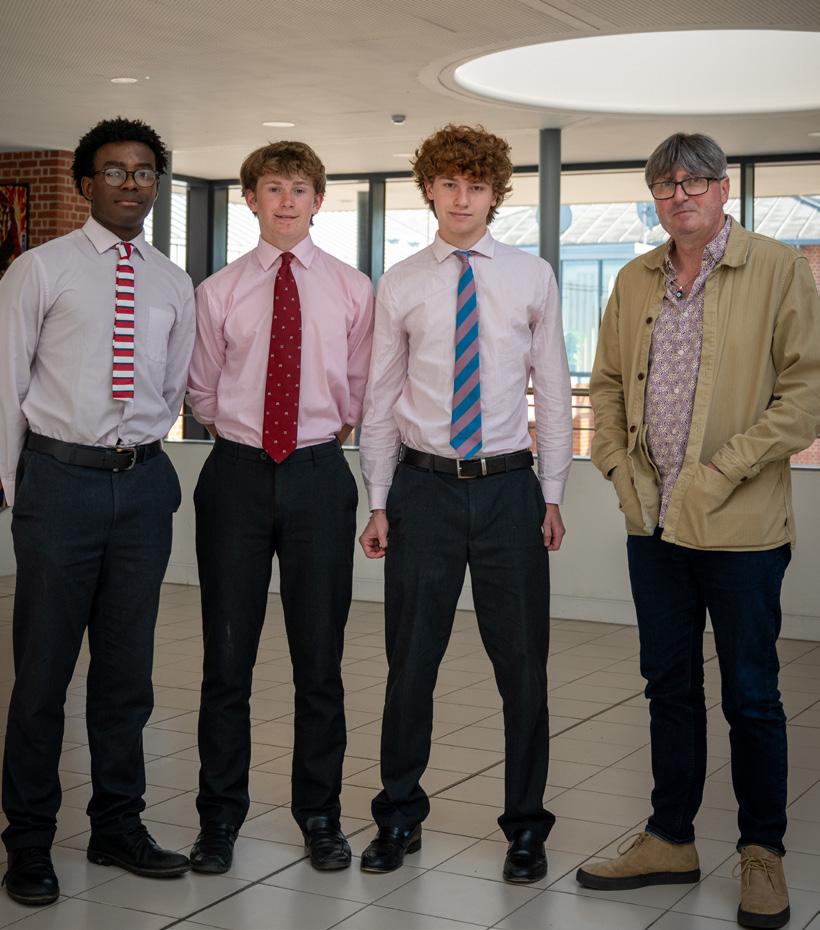

Radley College won The Week Independent Schools Guide’s ‘Best of the Best’ for Senior School Partnerships.
Edward Pearson (2020, L) competed in the 2025 Euroformula Open Championship, topping April’s race in the Algarve International Circuit and securing another podium finish at Germany’s Hockenheimring.
Will Stuart (2009, D) visited Radley to deliver a series of coaching masterclasses to teams from across all year groups before taking part in a Q&A session.
Over the summer, Manny’s (6.1, G) bowling led Hampshire Cricket to triumph and earned him a place in the England U19 squad. Will (V, J) represented Gloucester County Cricket Club 2nd XI.
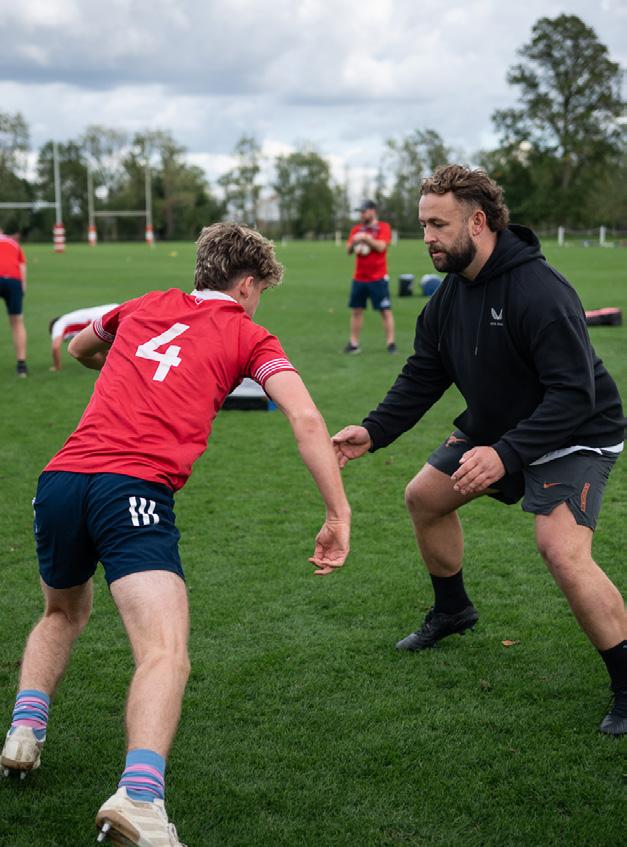
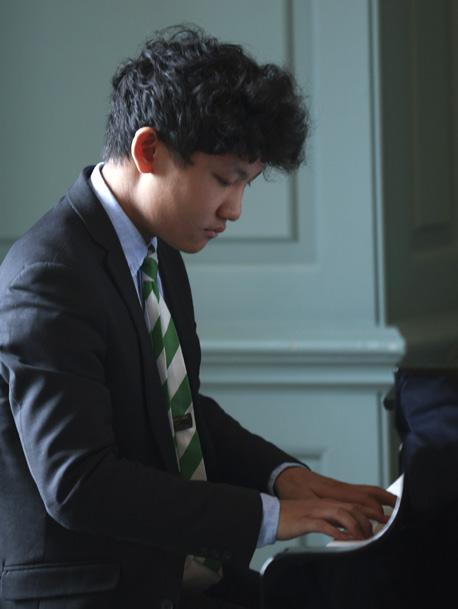
Kyle Chan (2020, K) won the 2025 Wharton Piano Prize with his his rendition of Debussy’s La Cathédrale Engloutie. power of simple playing cards…
Internationally renowned magician, Drummond Money-Coutts, star of Netflix’s Death by Magic, brought his new show Nothing is Impossible to Radley, wowing boys with the
